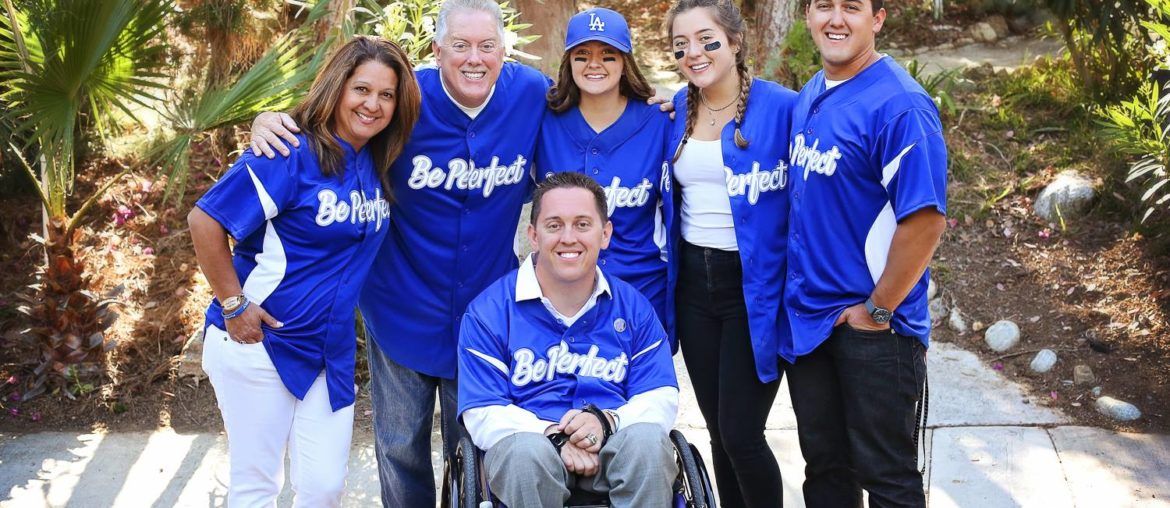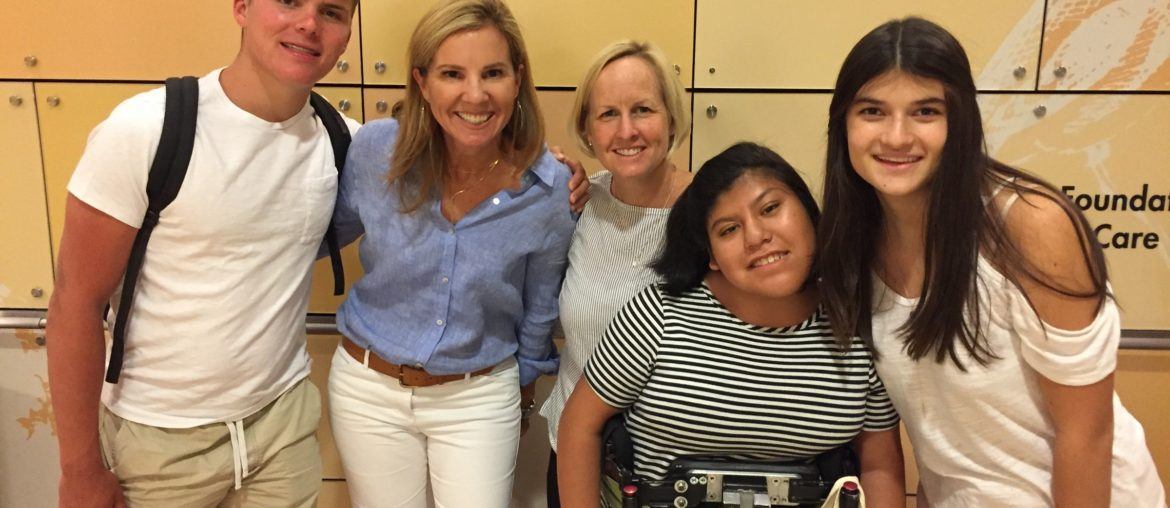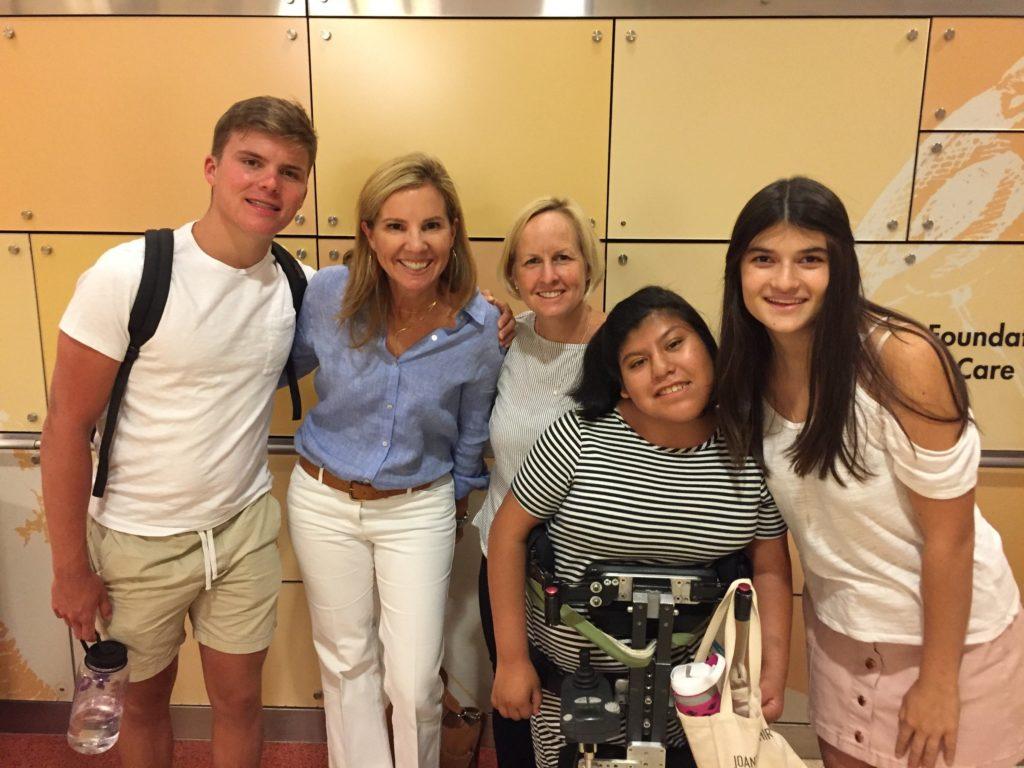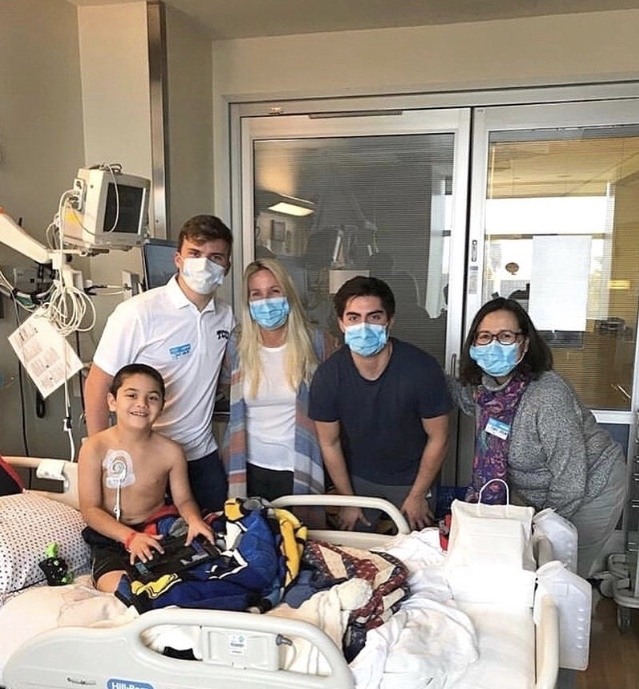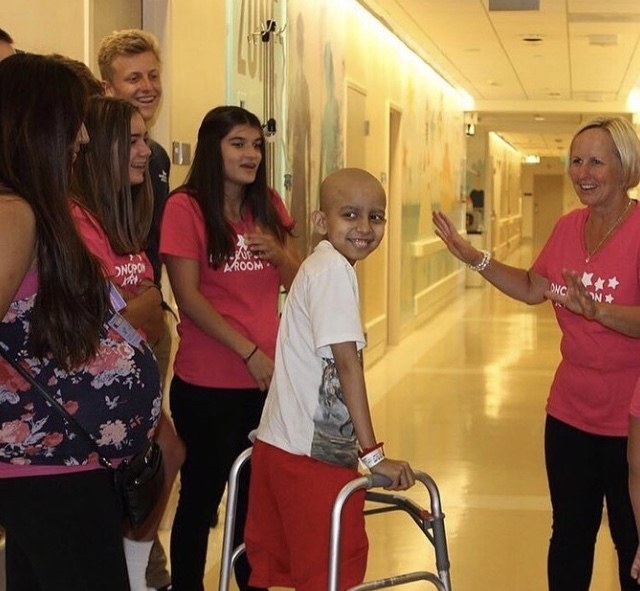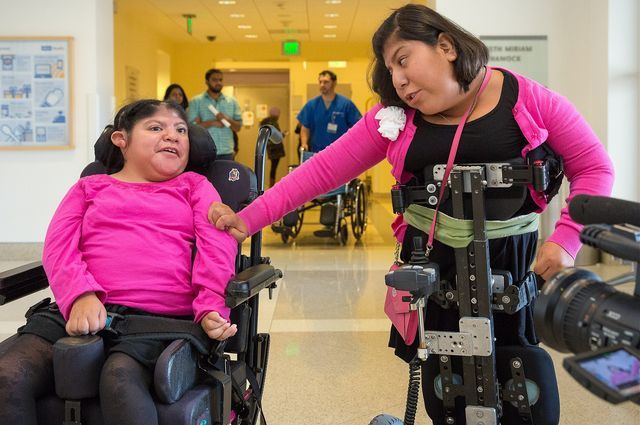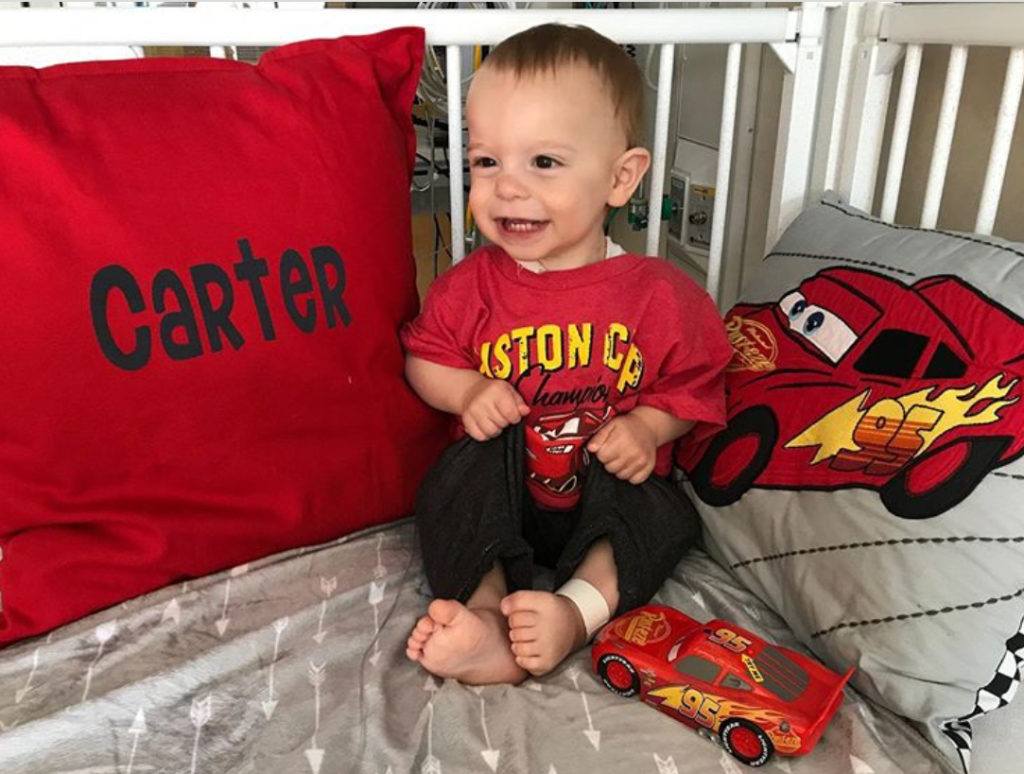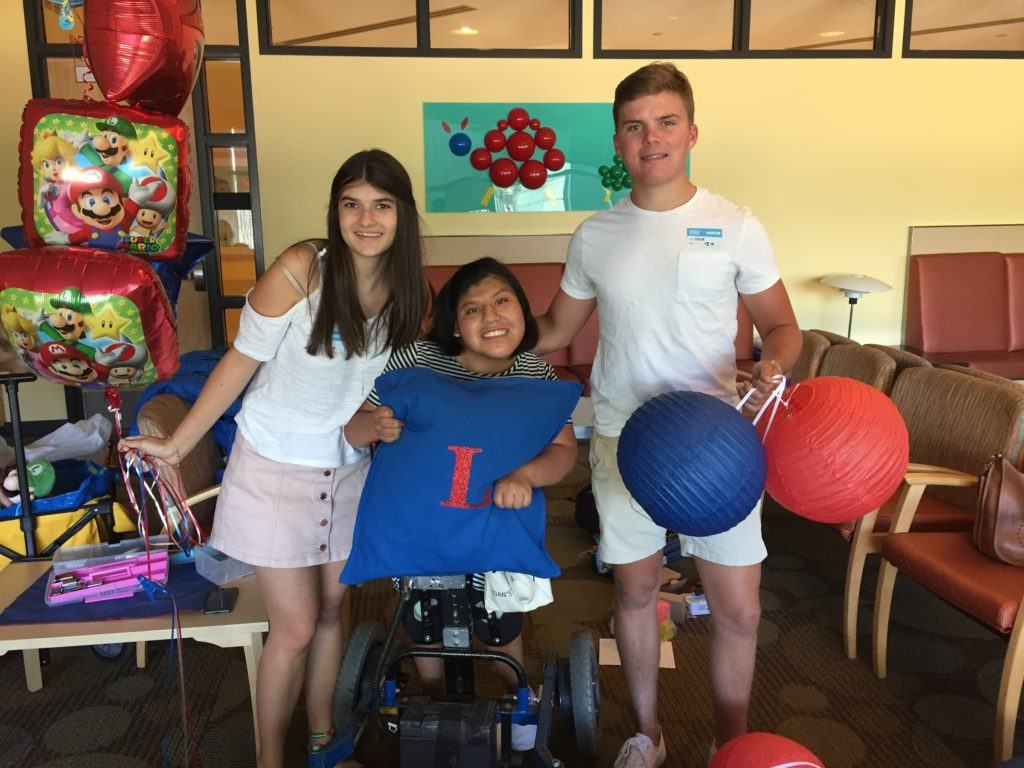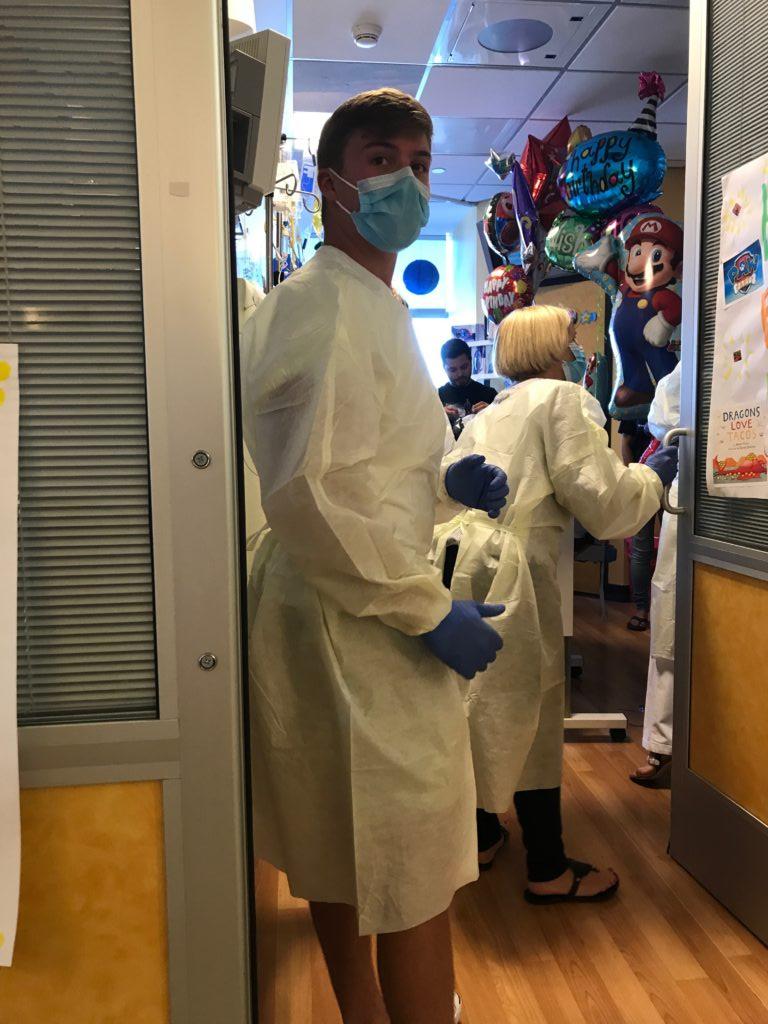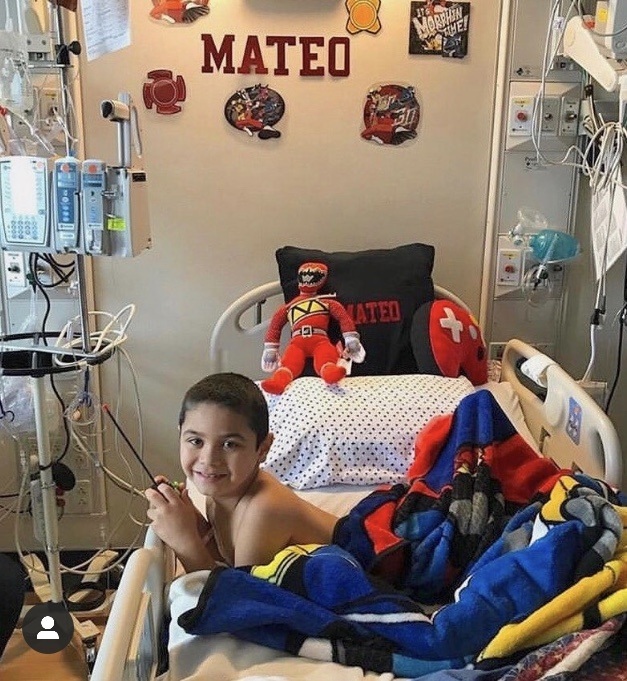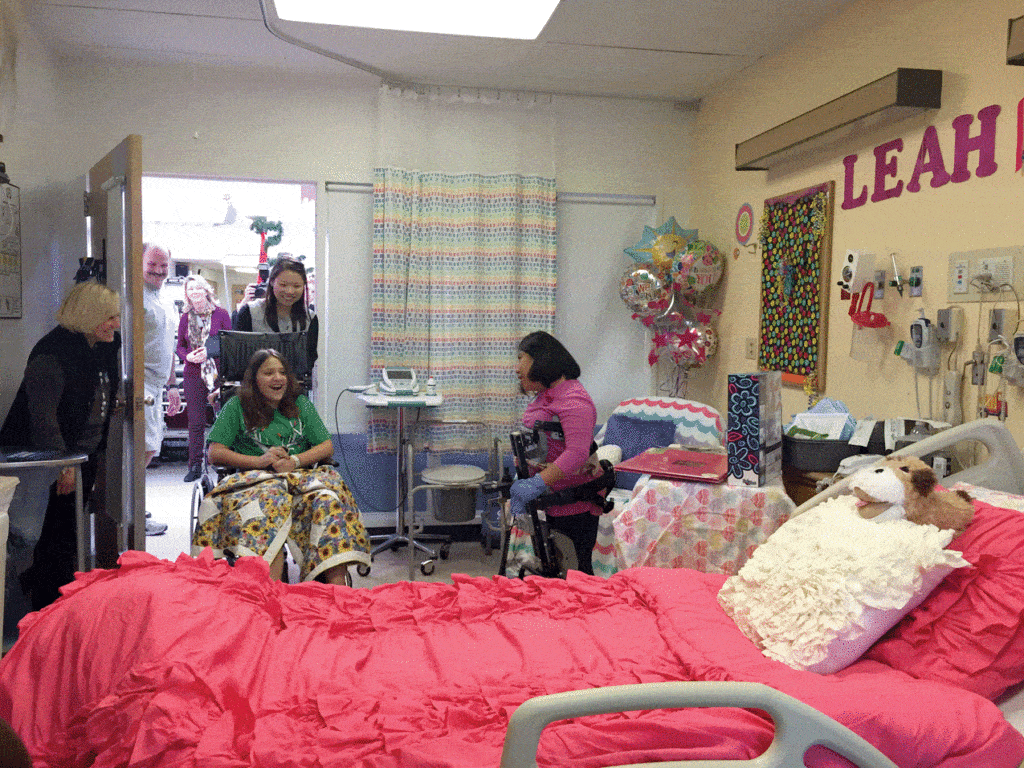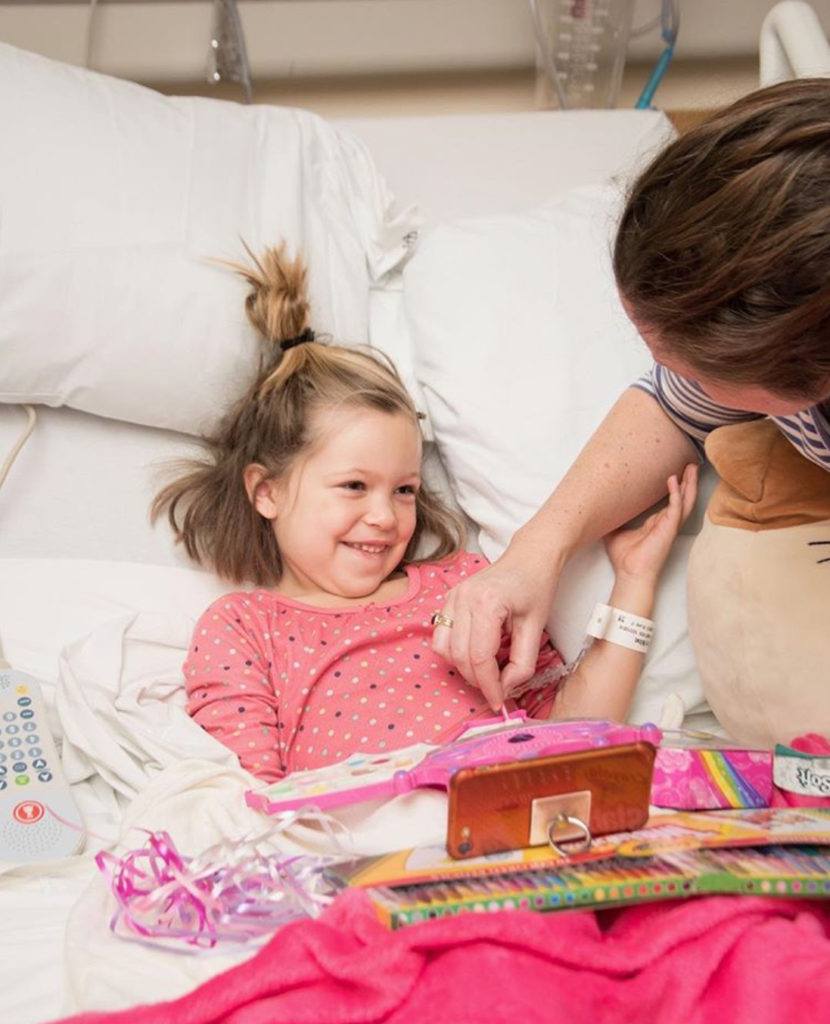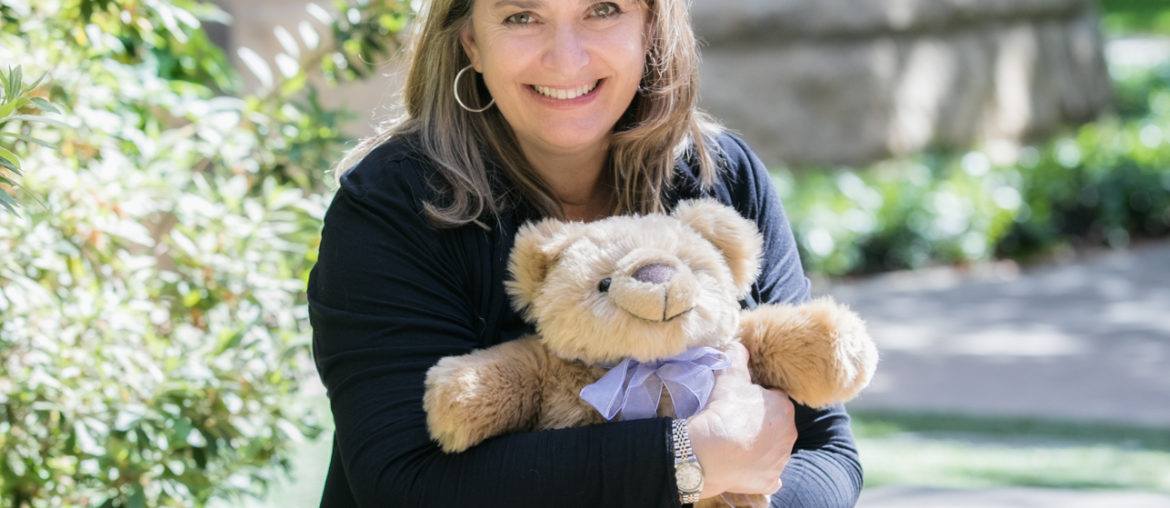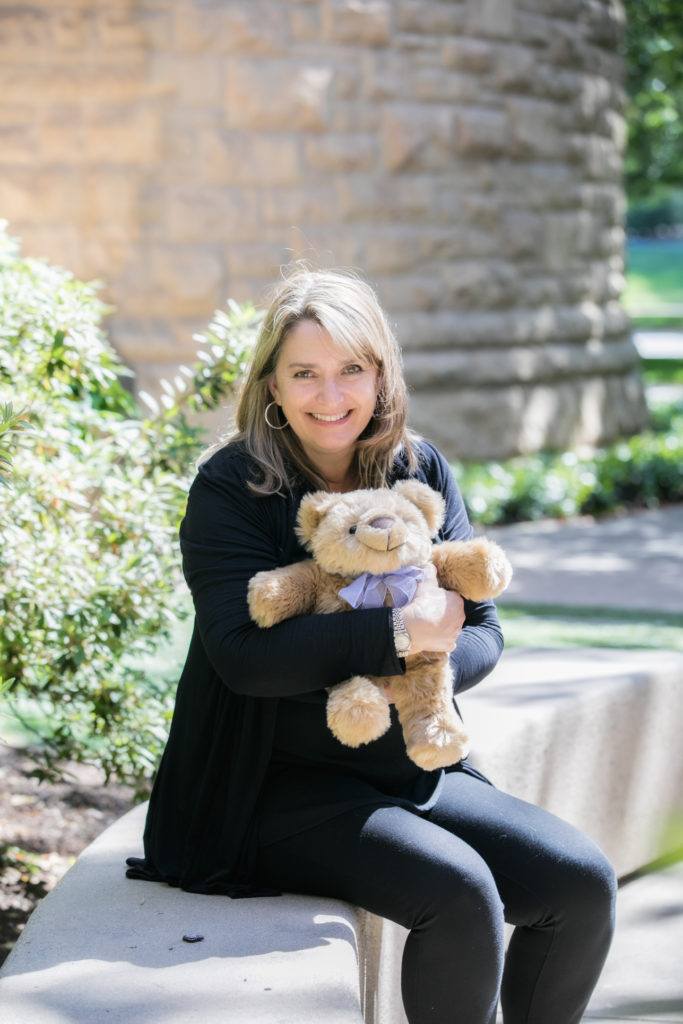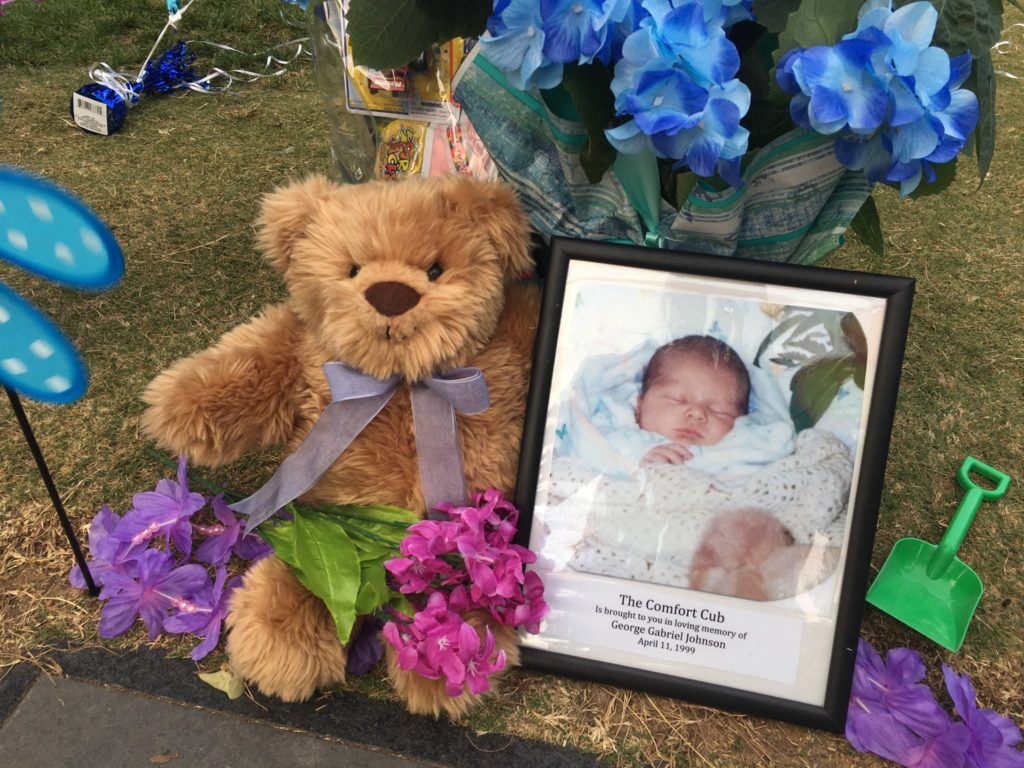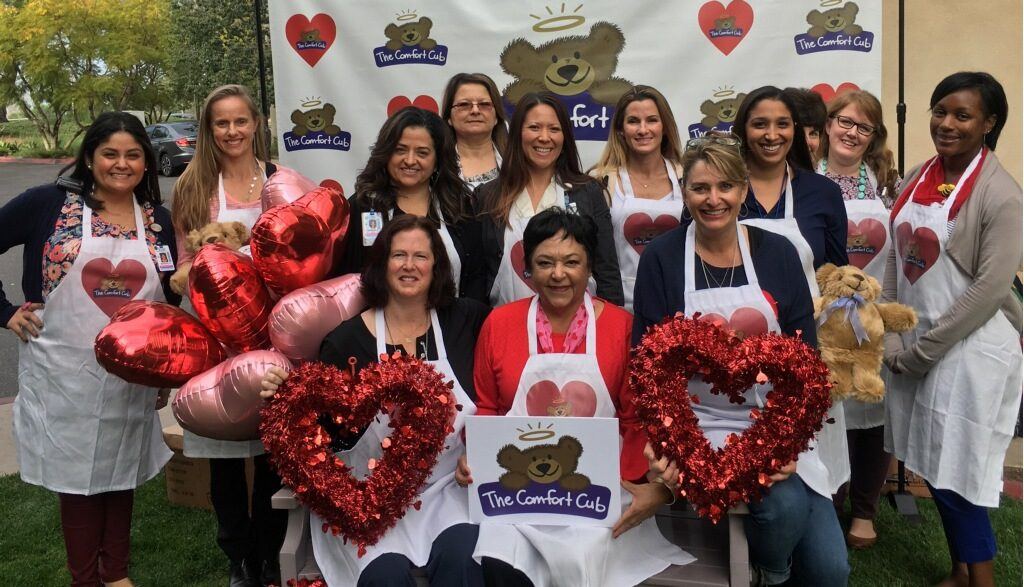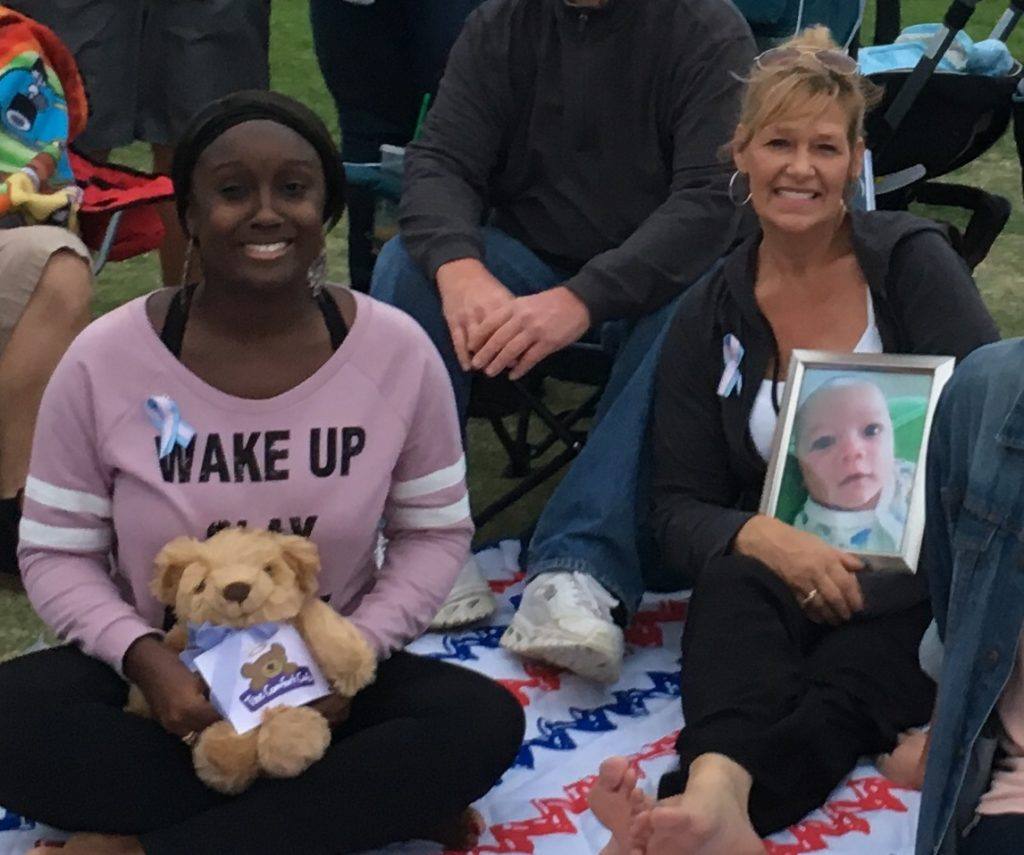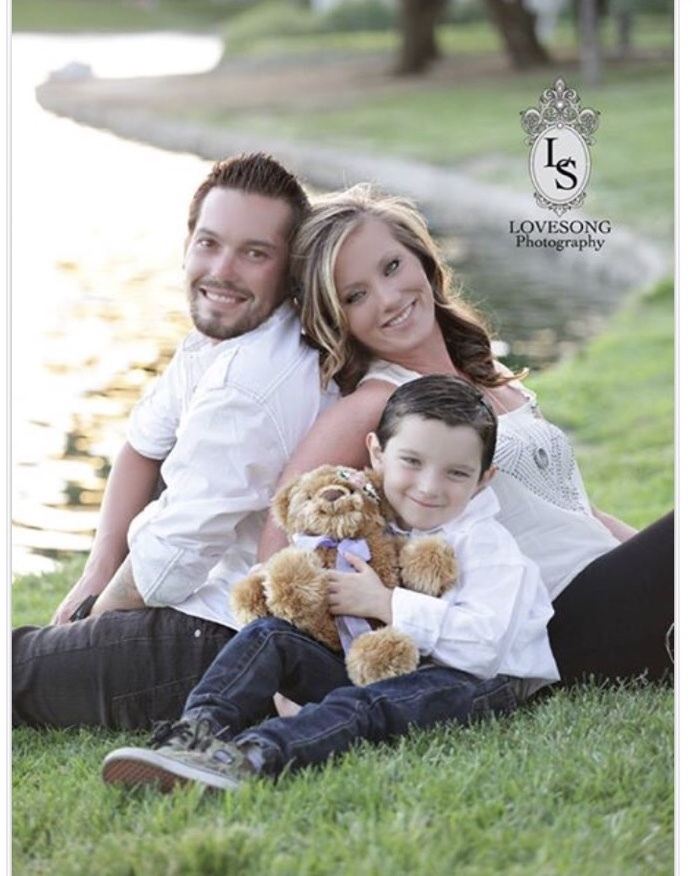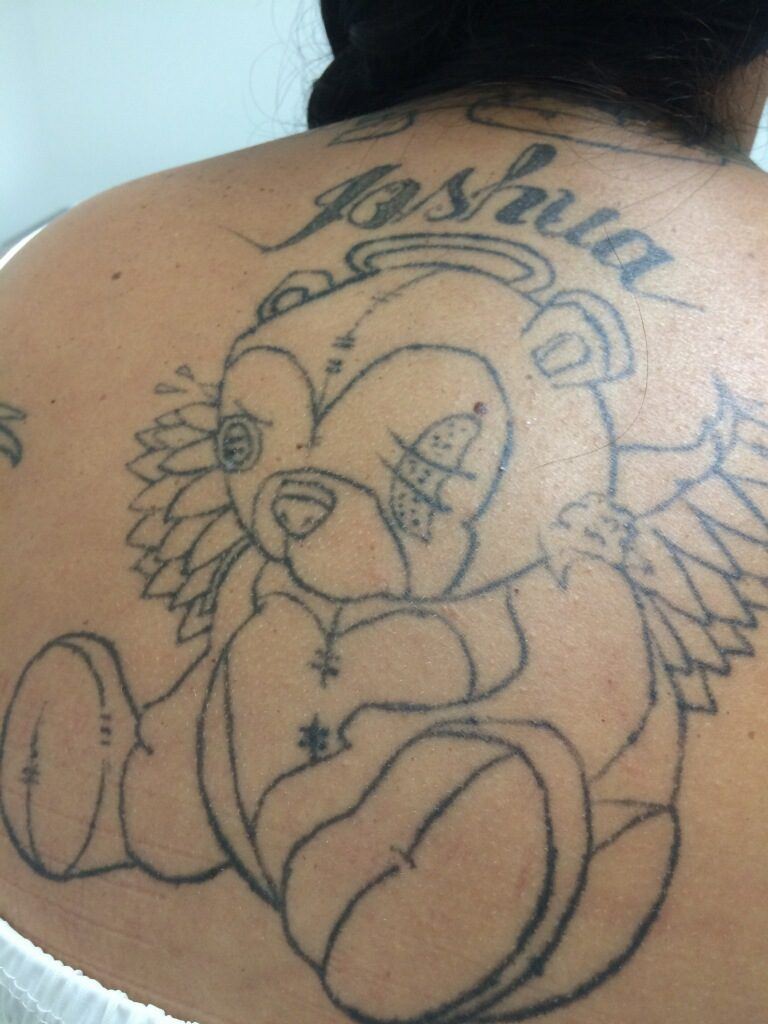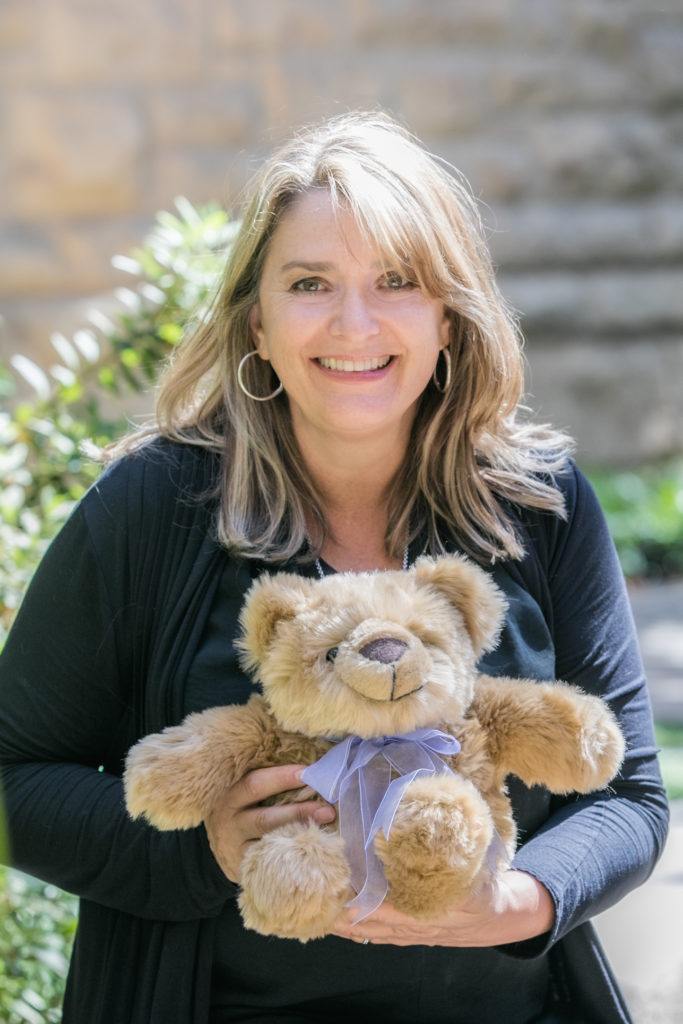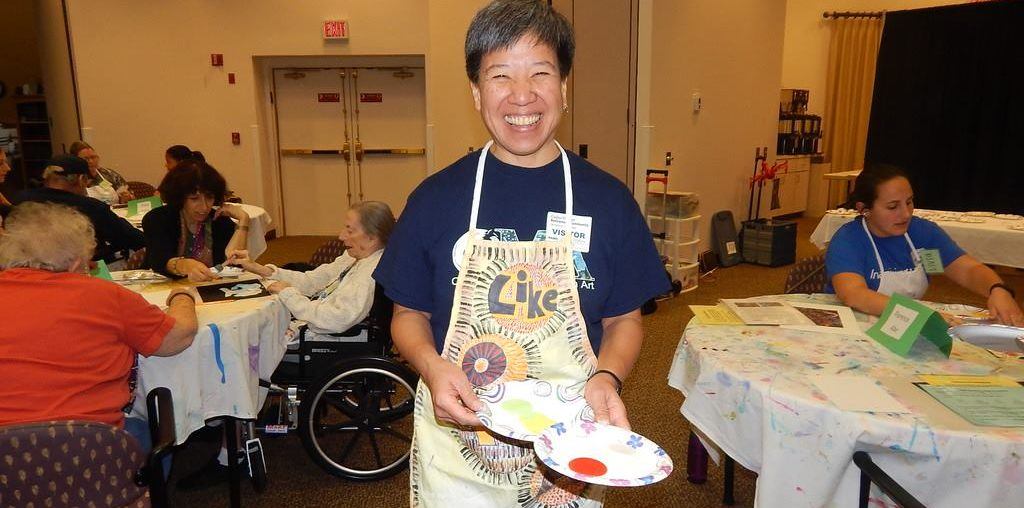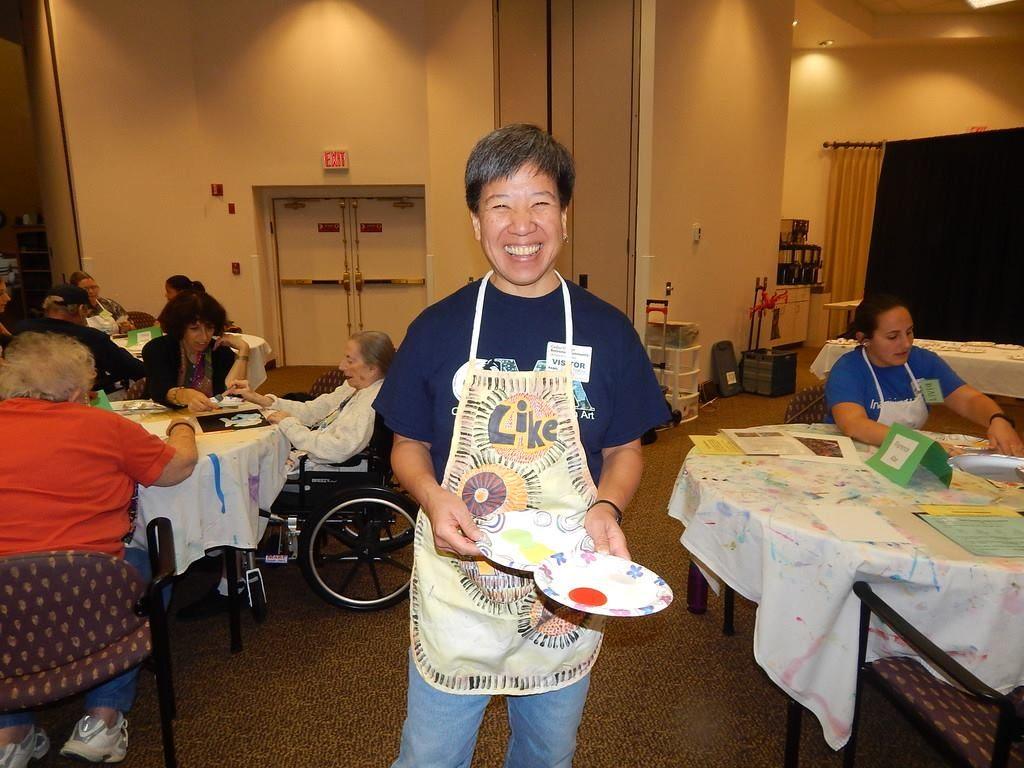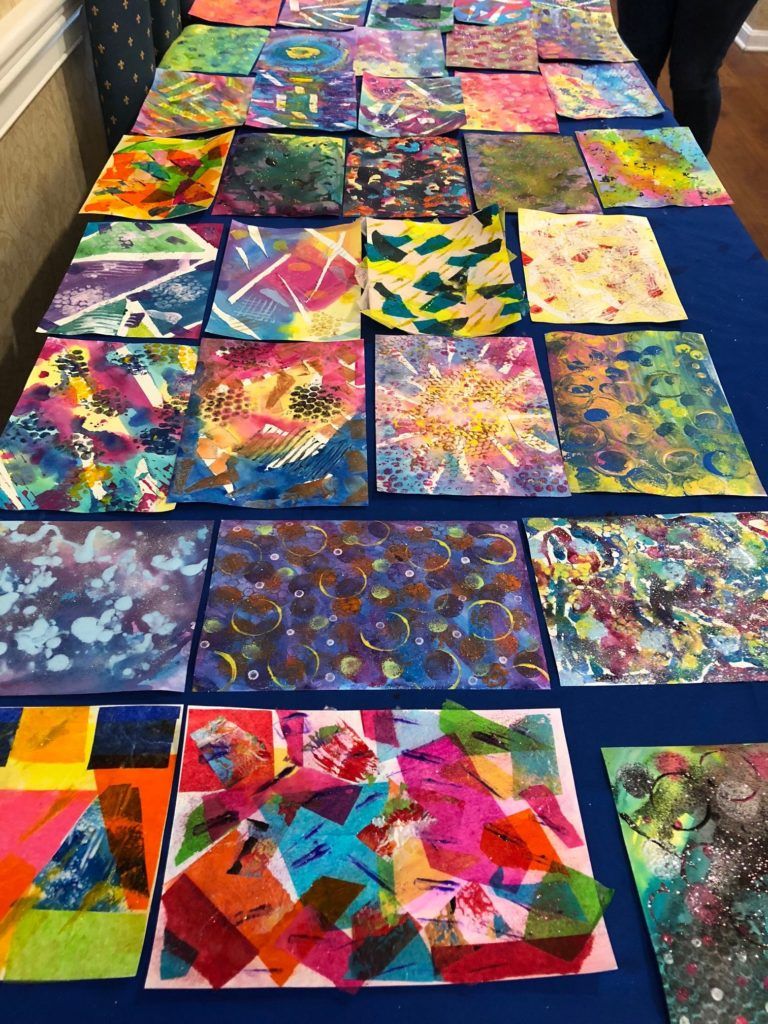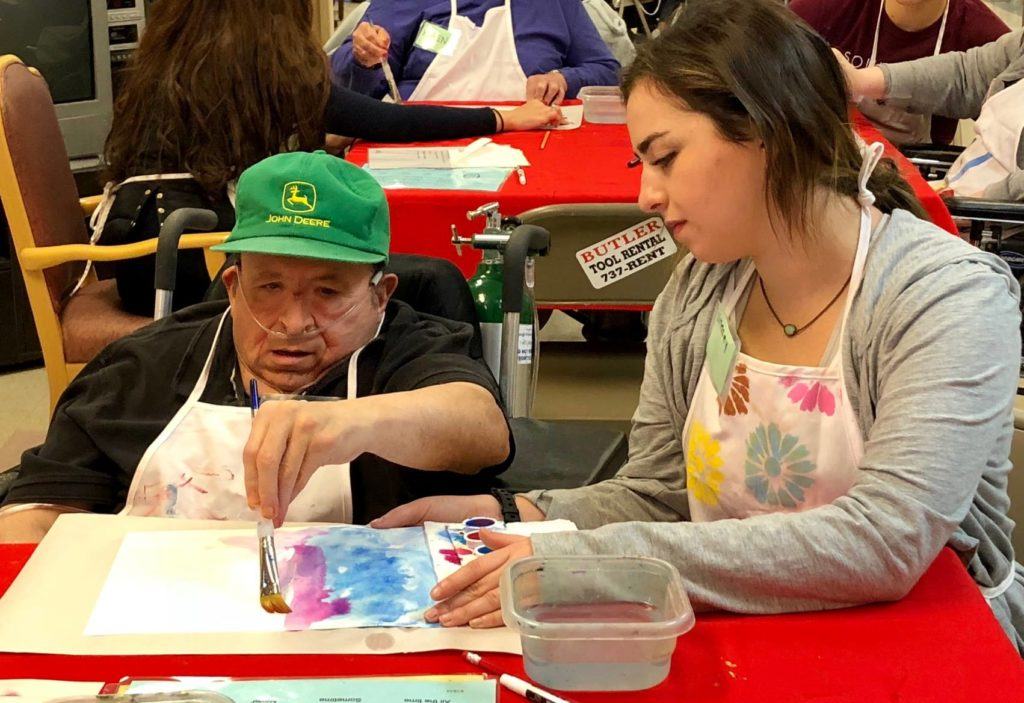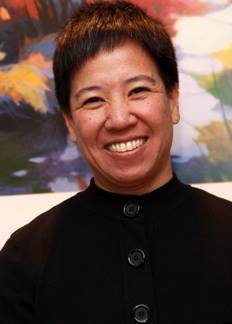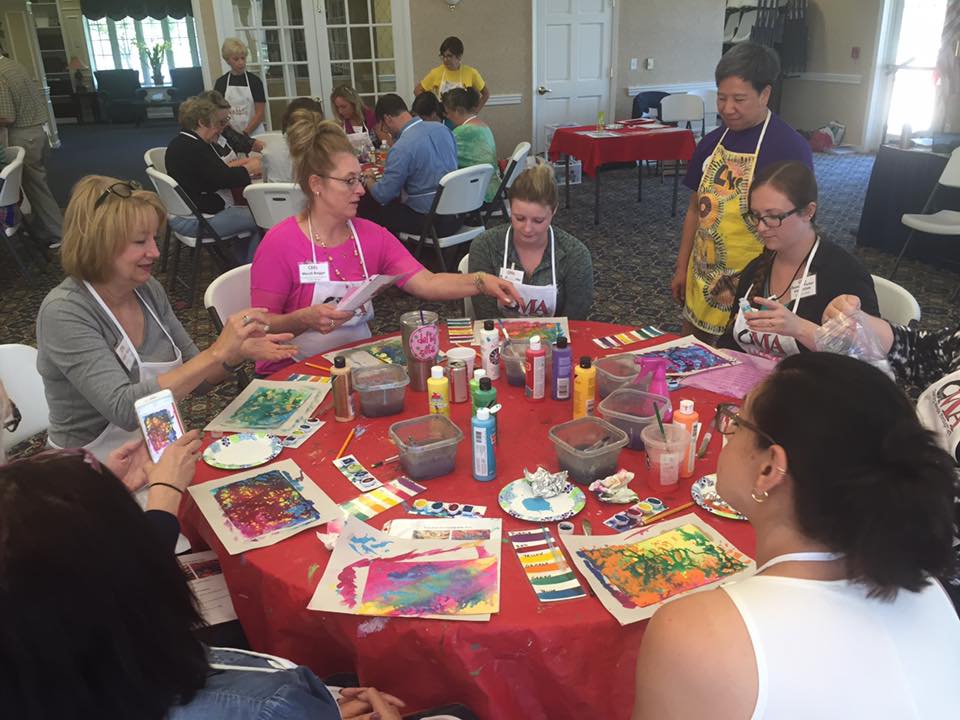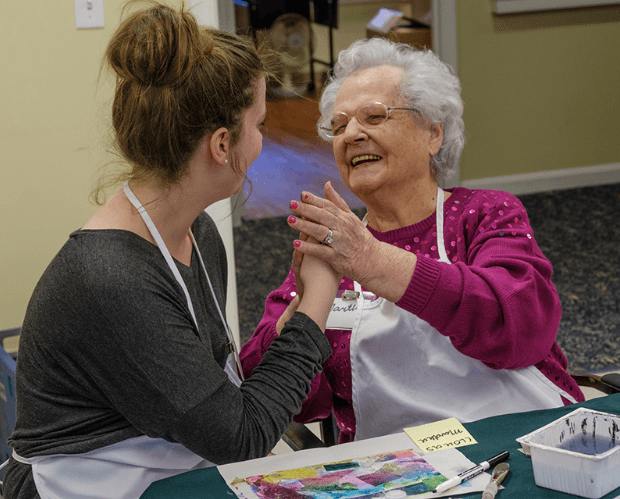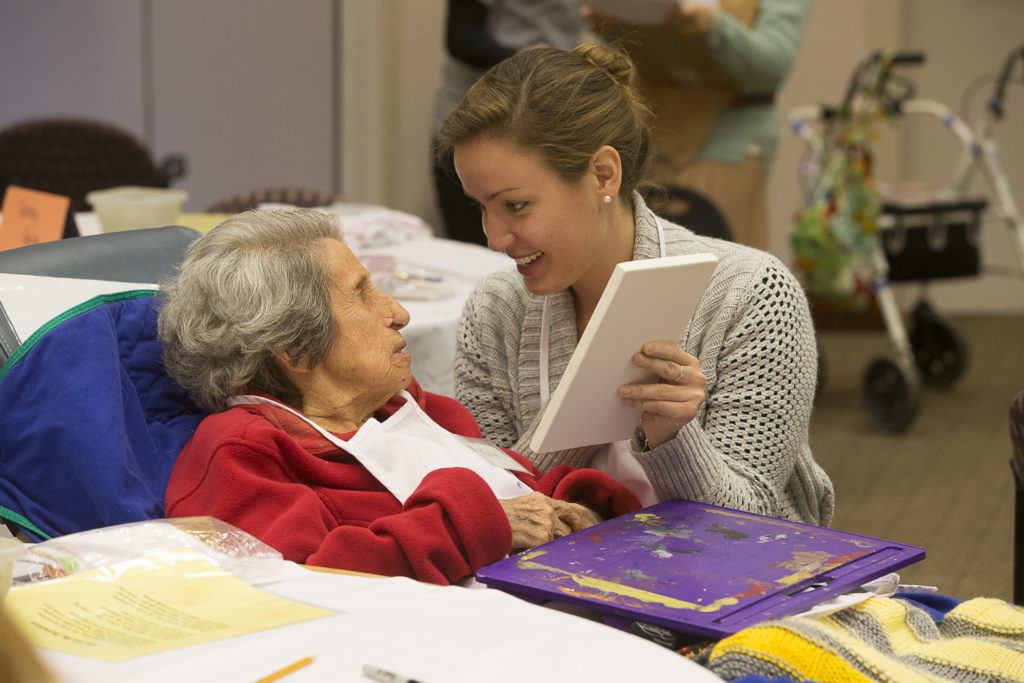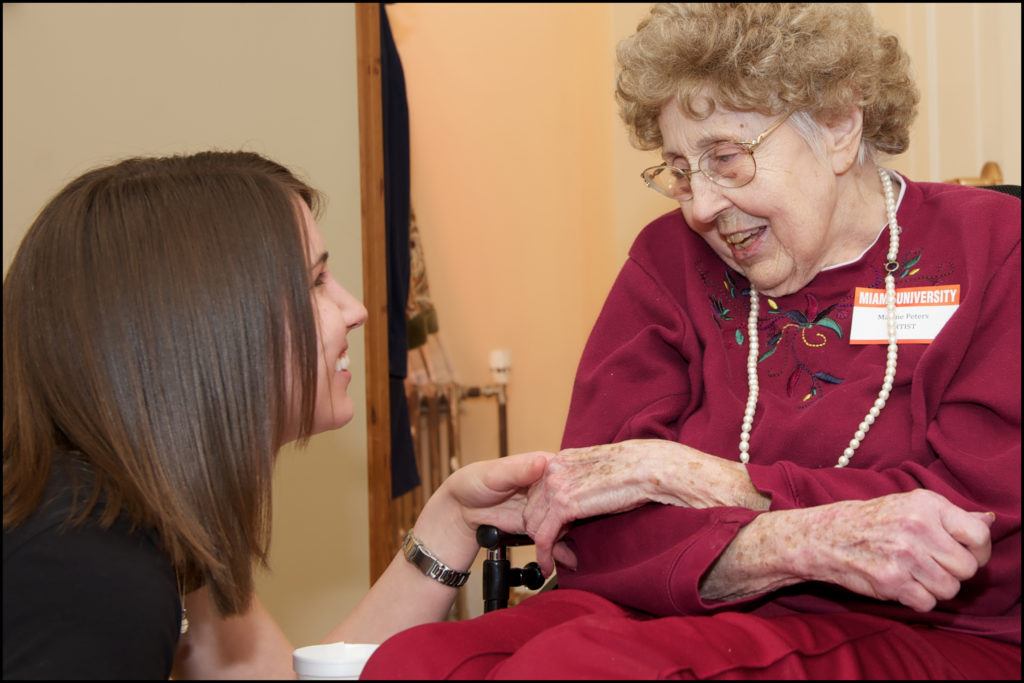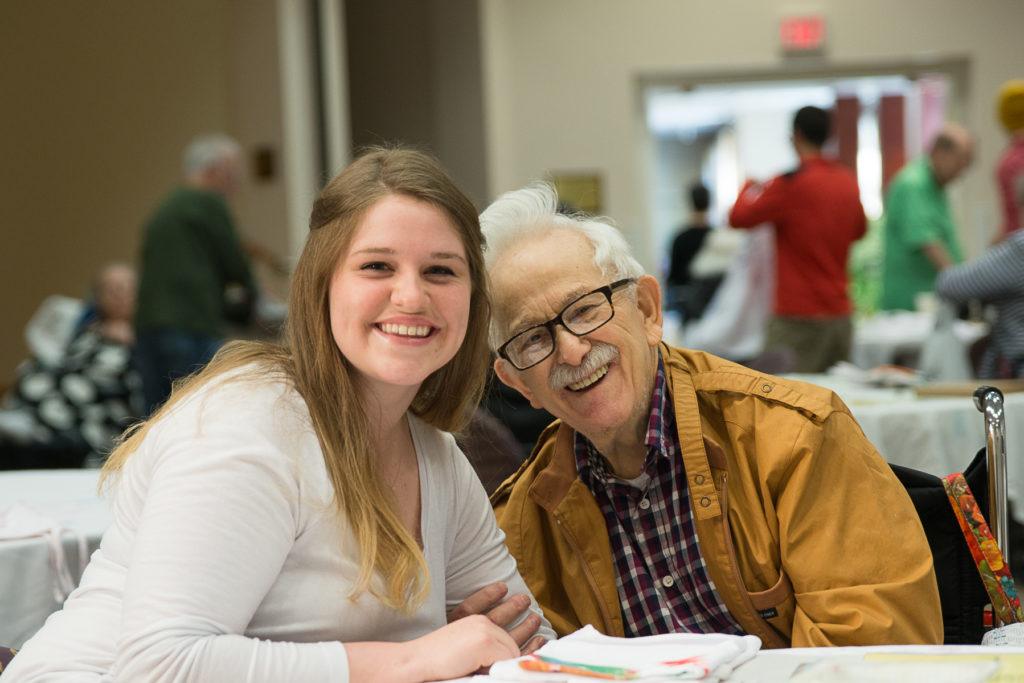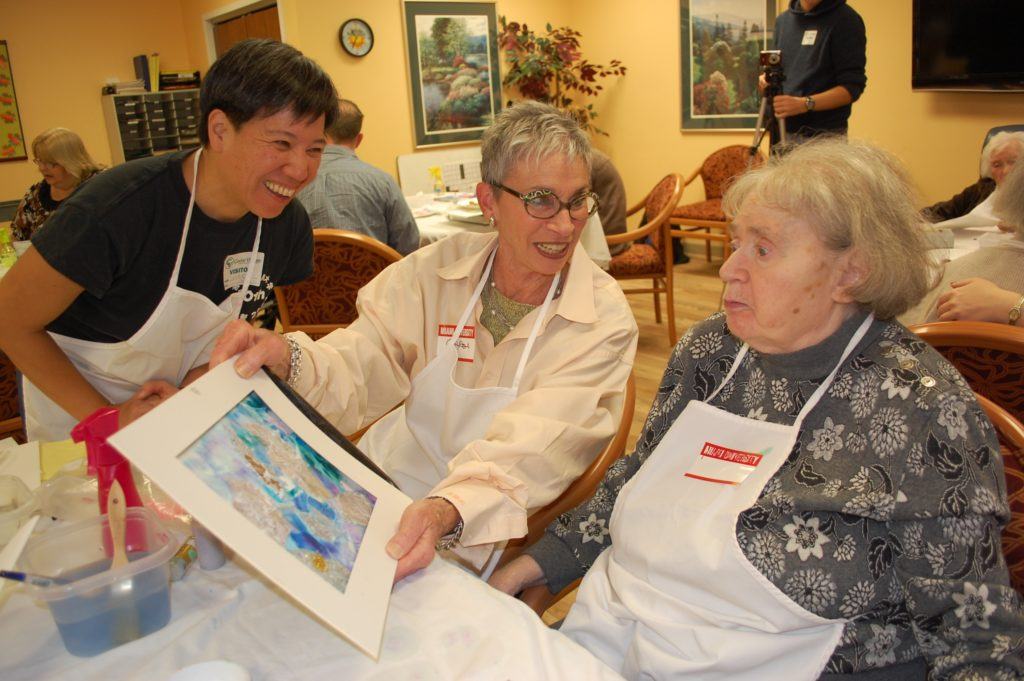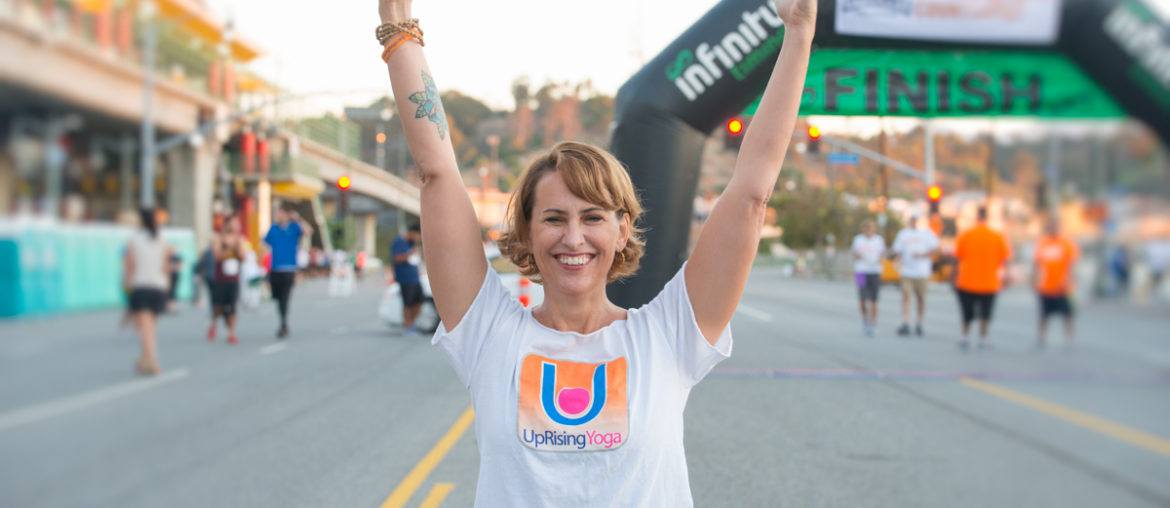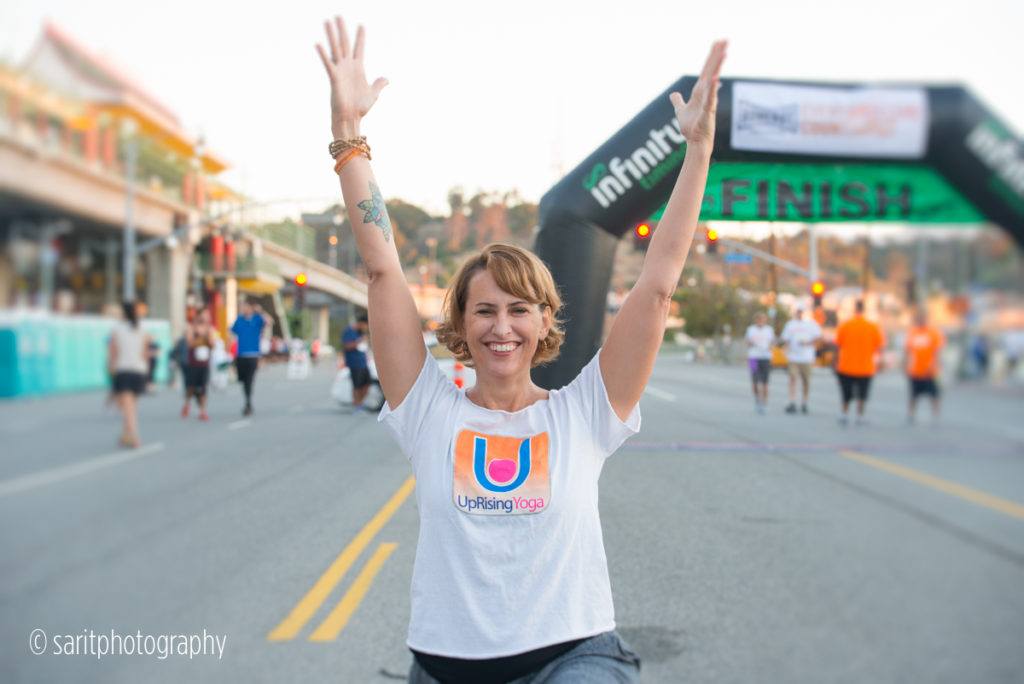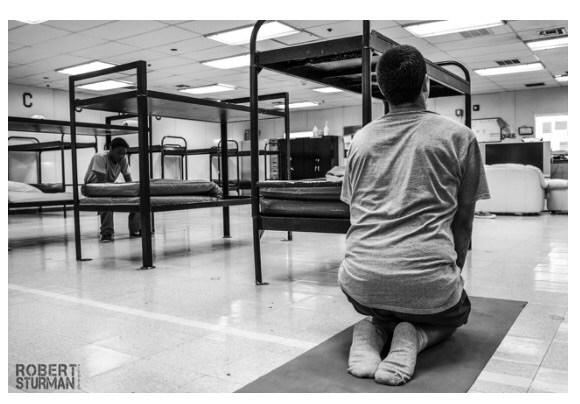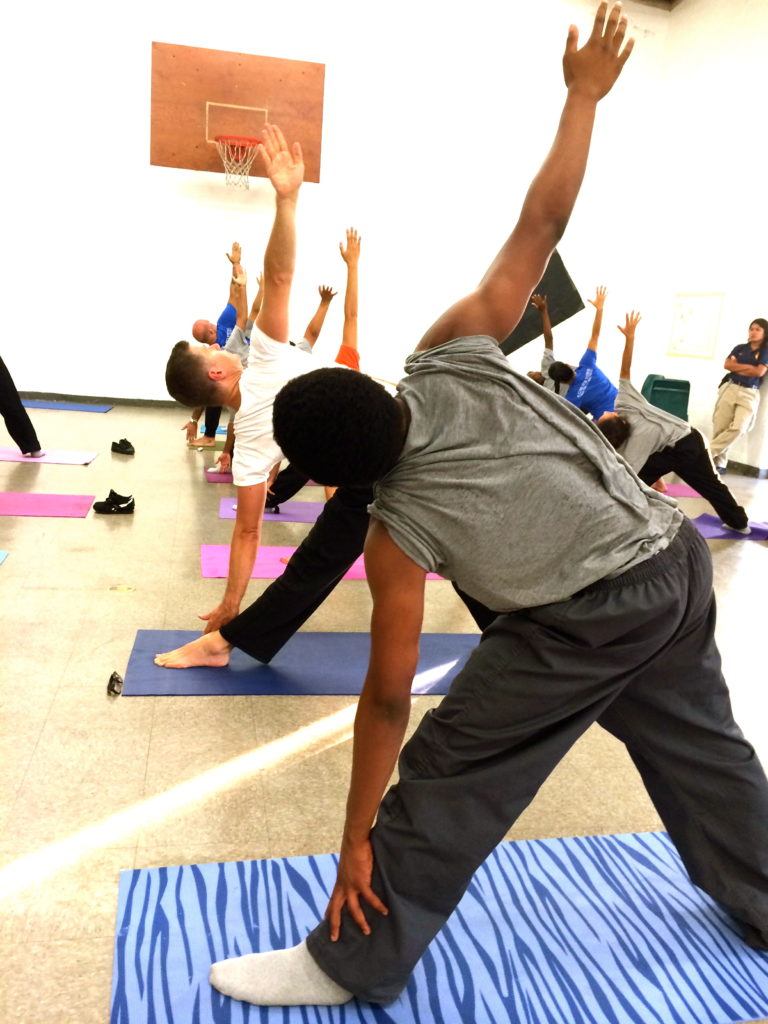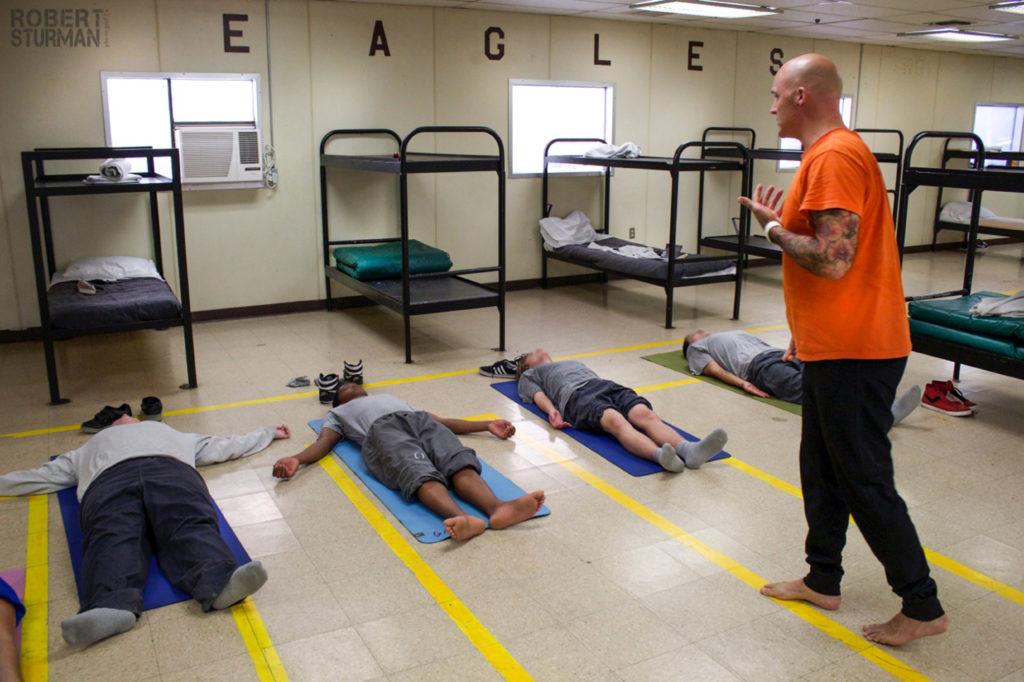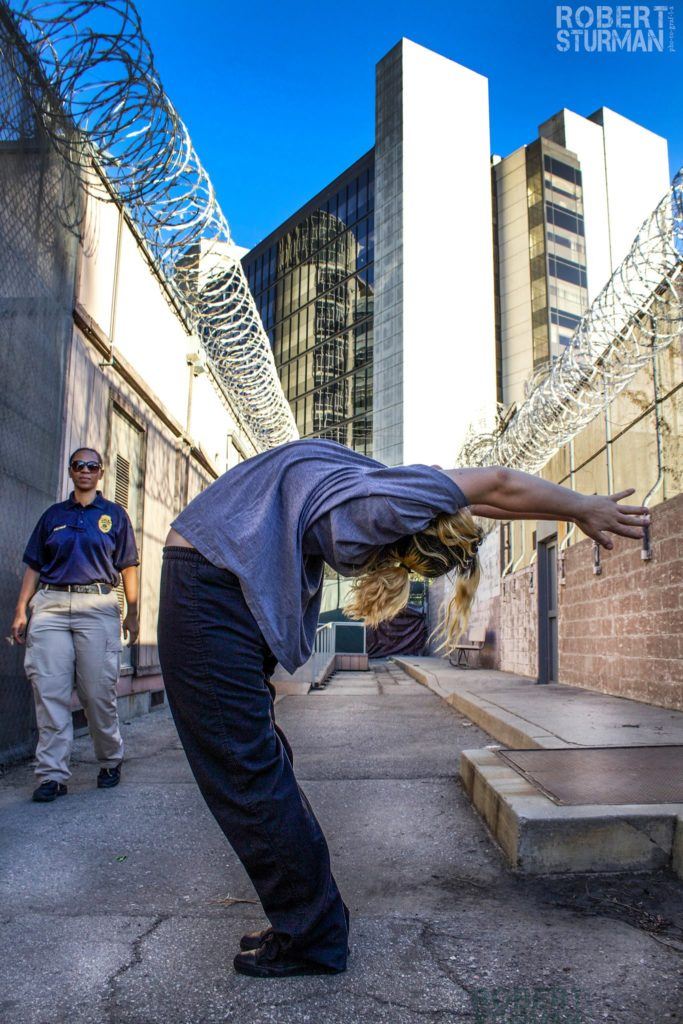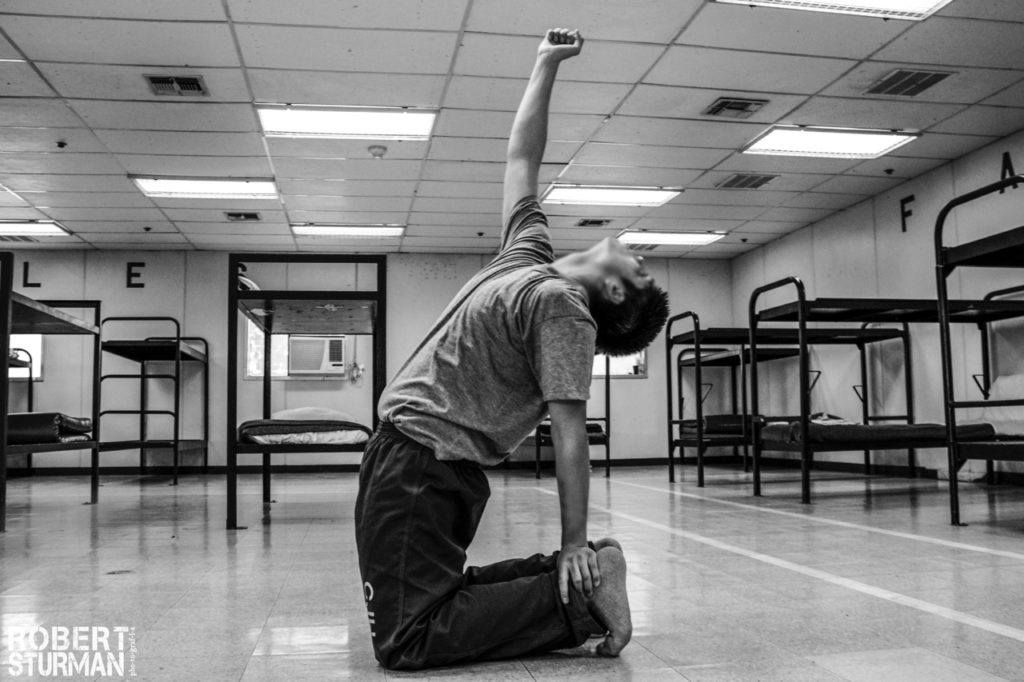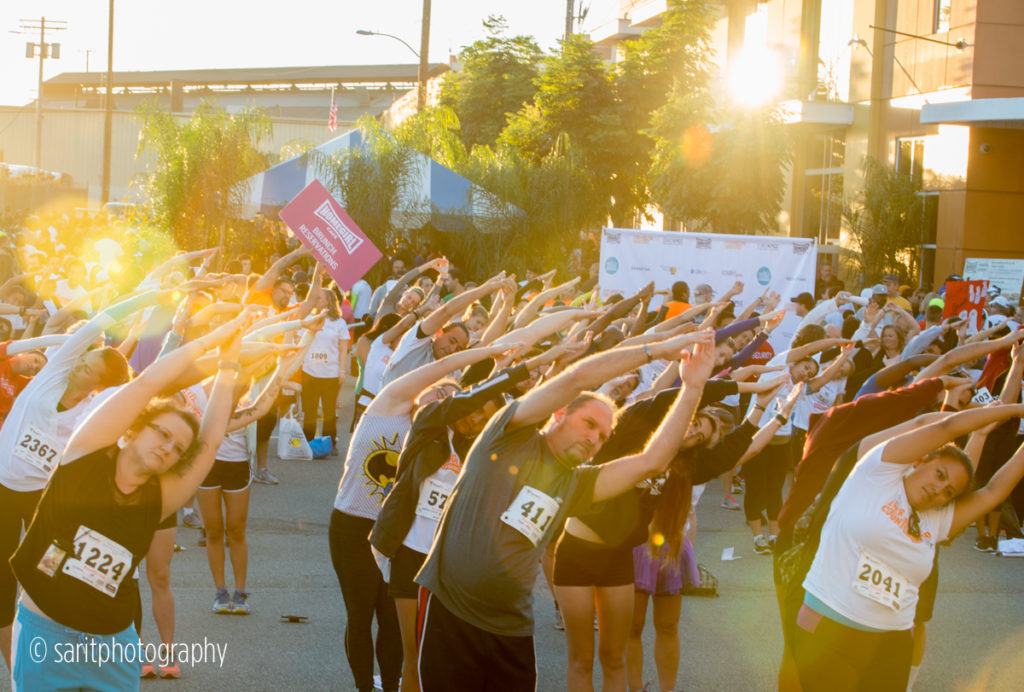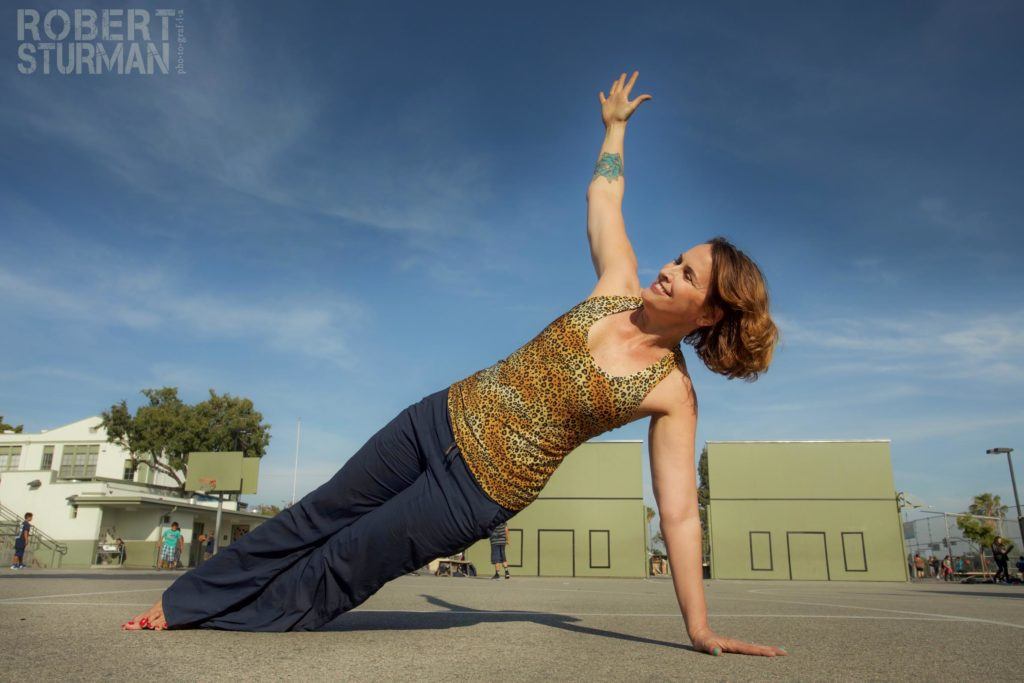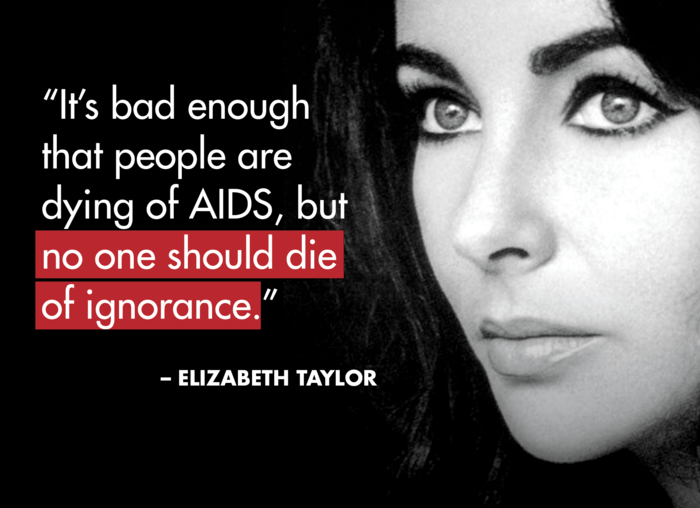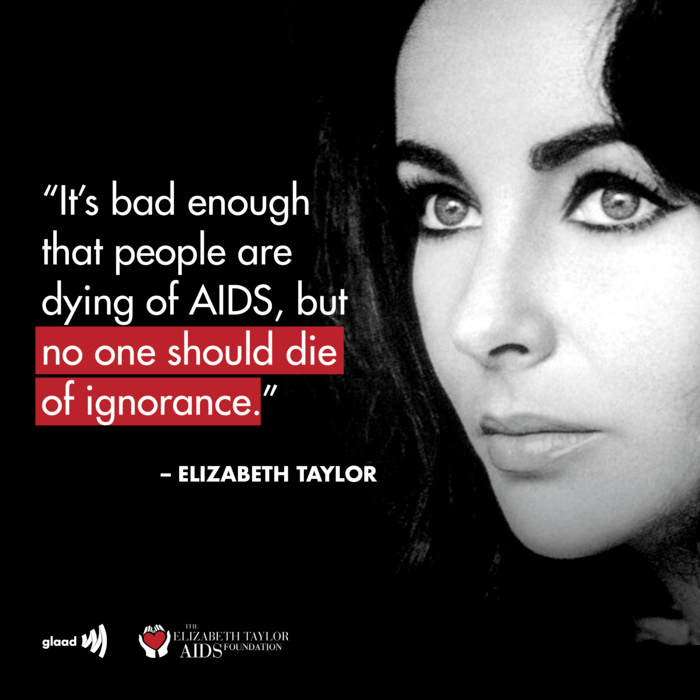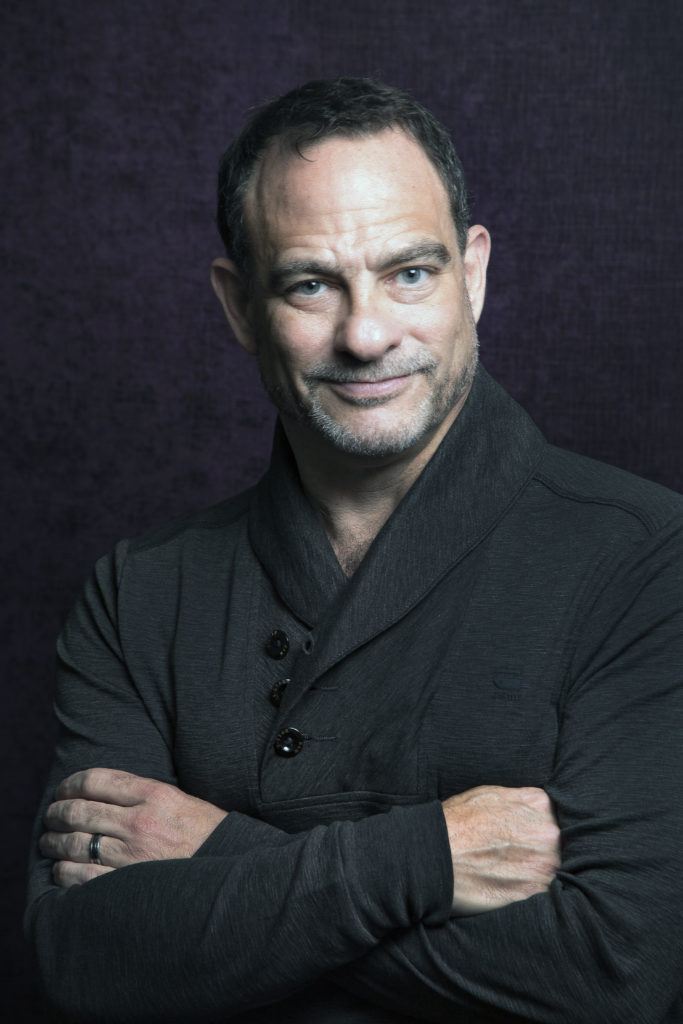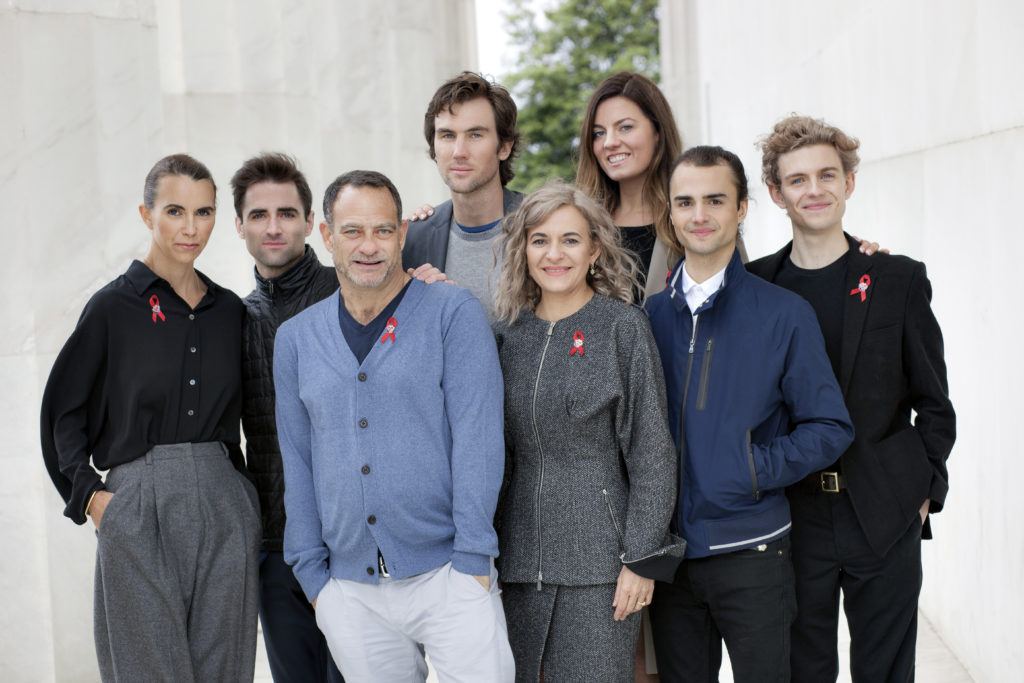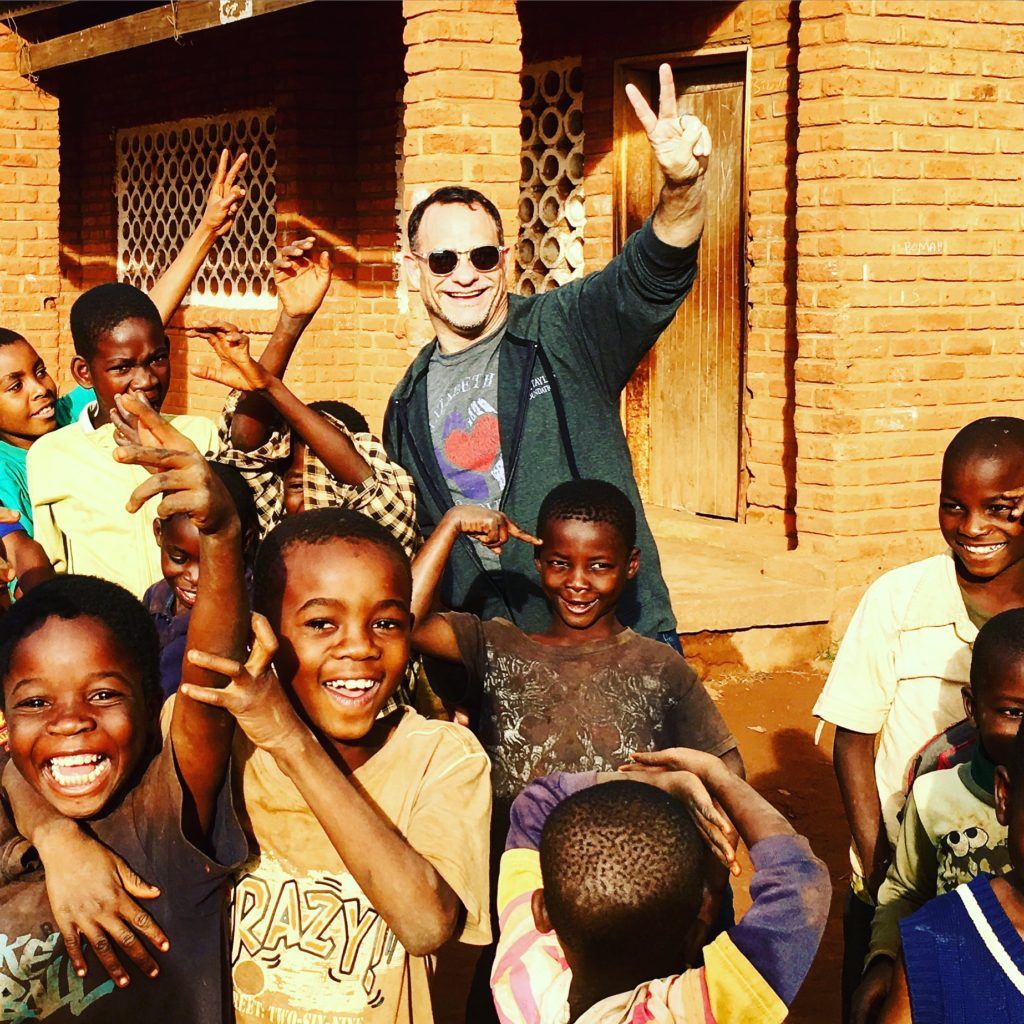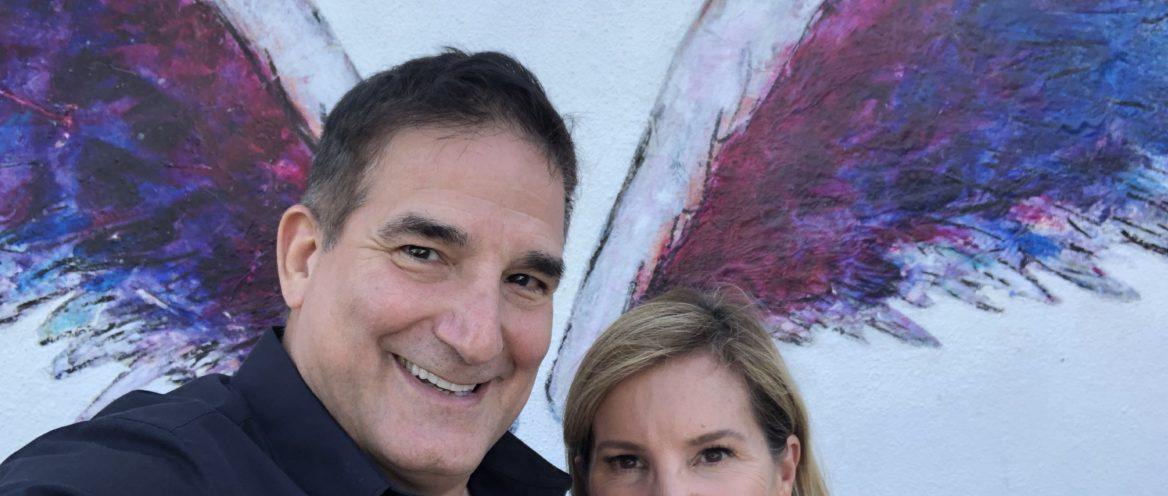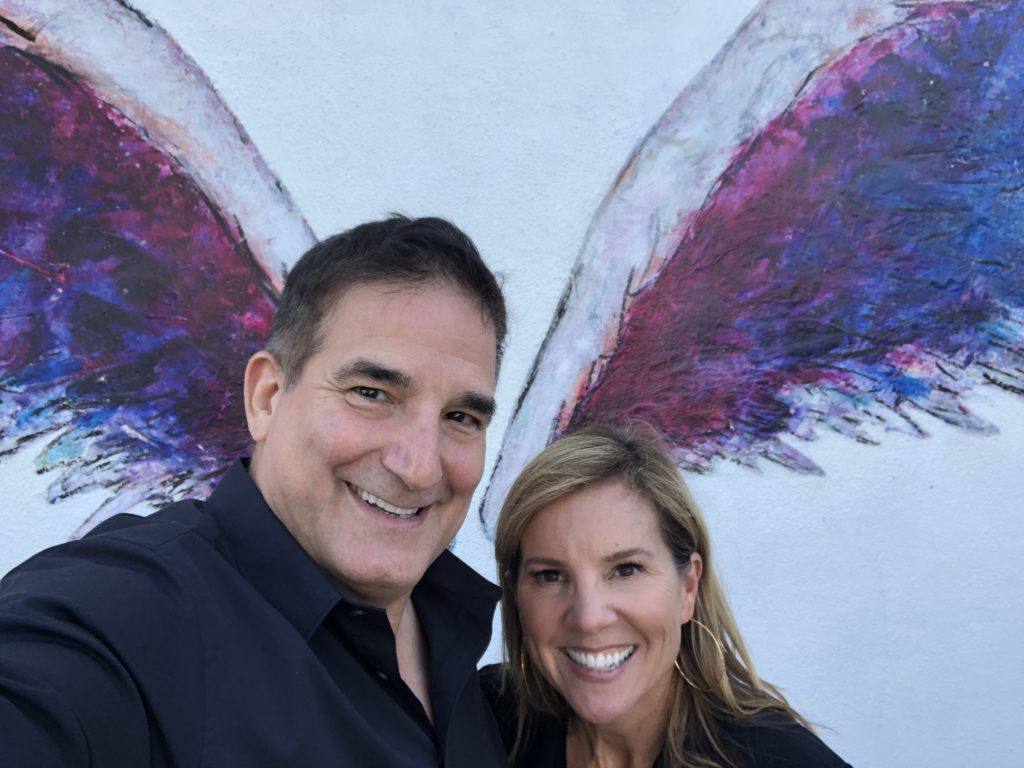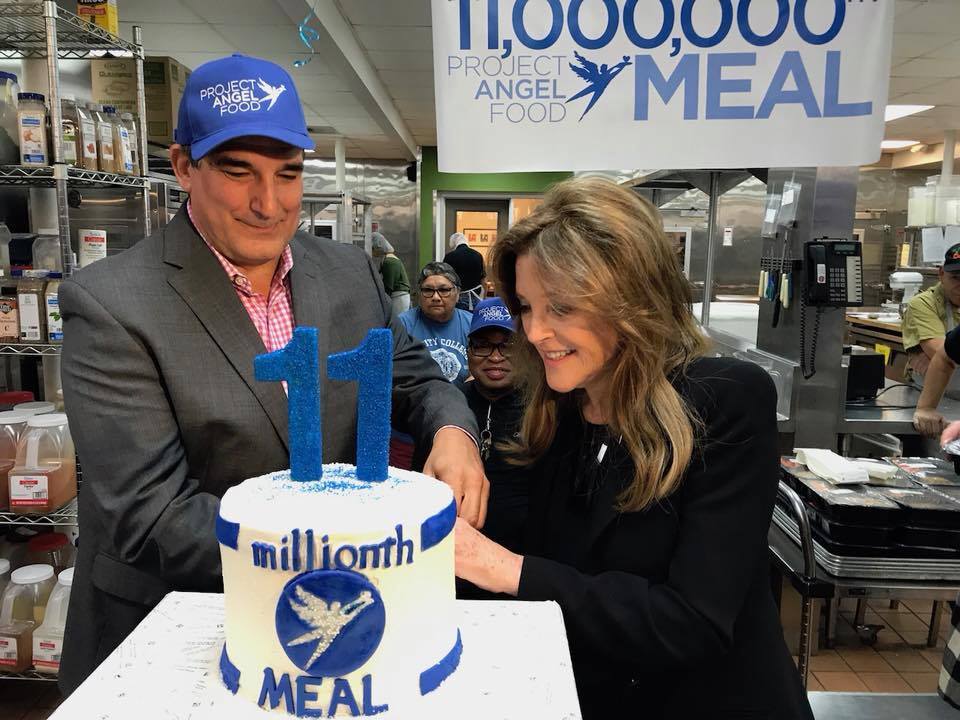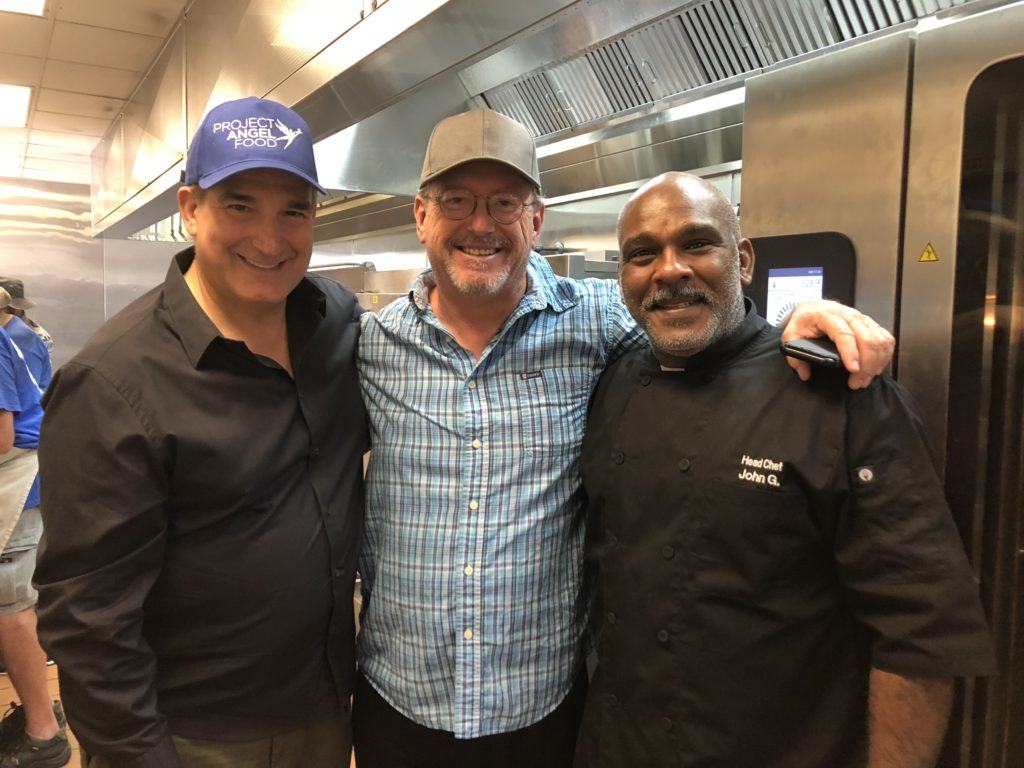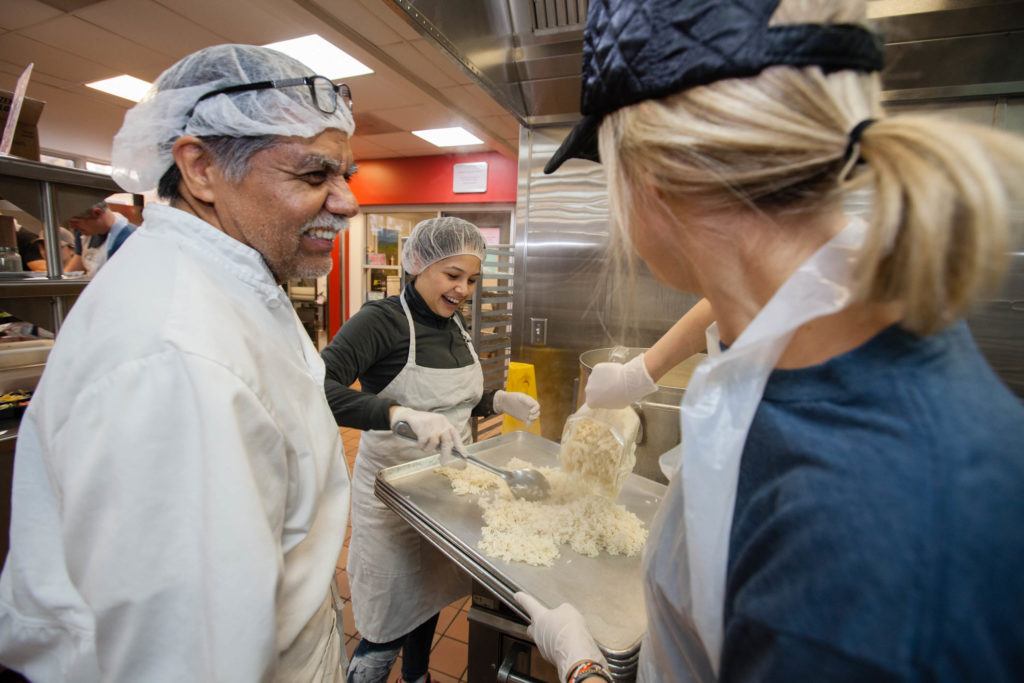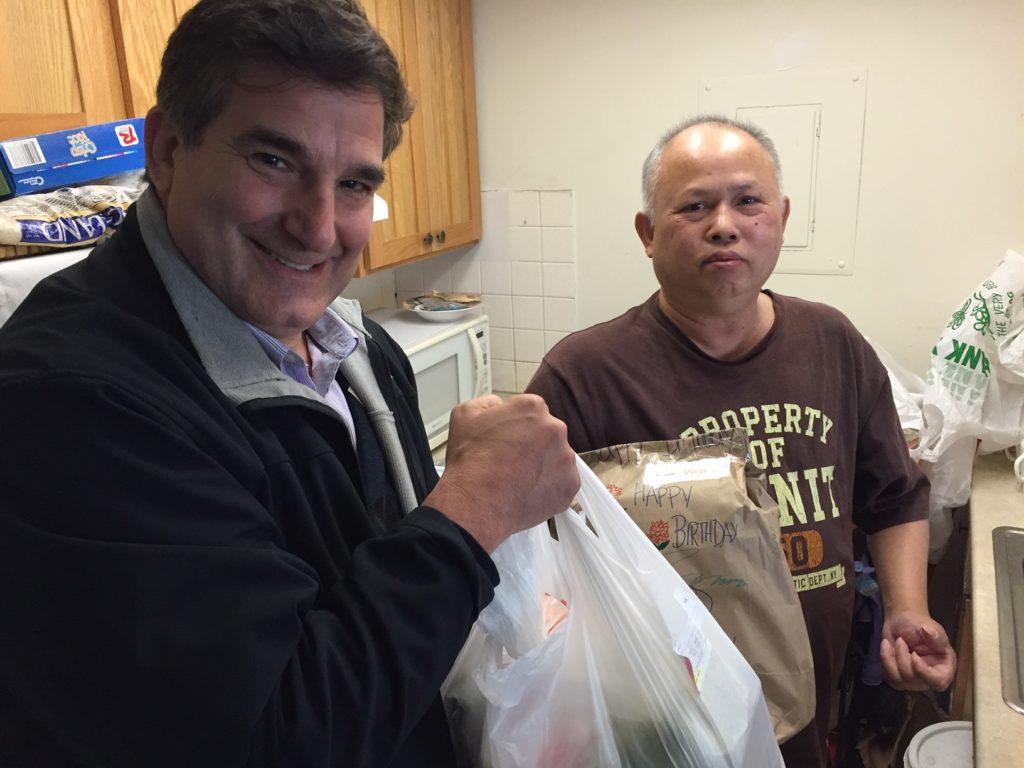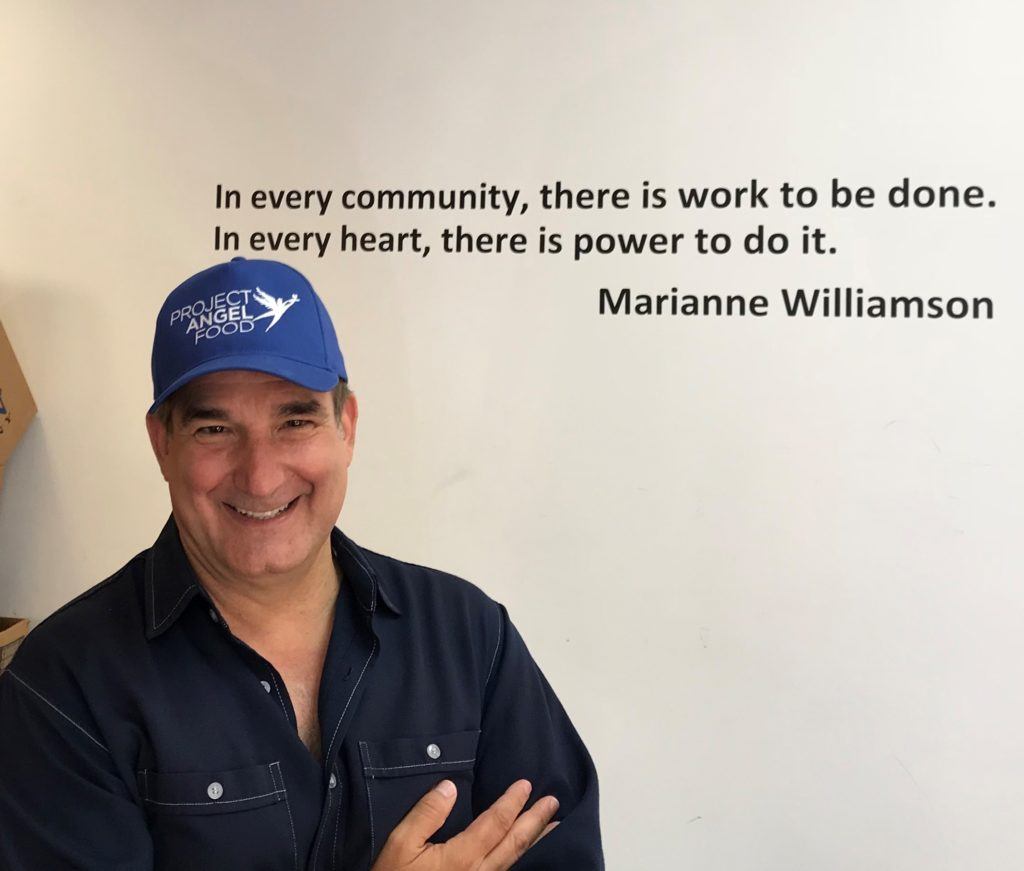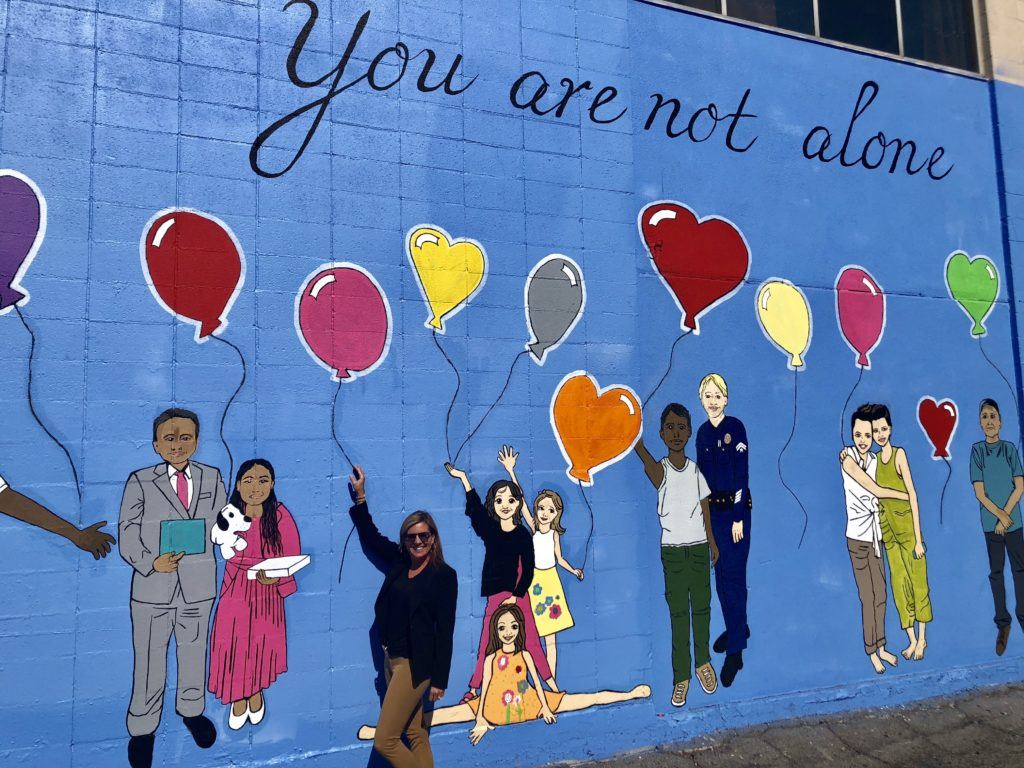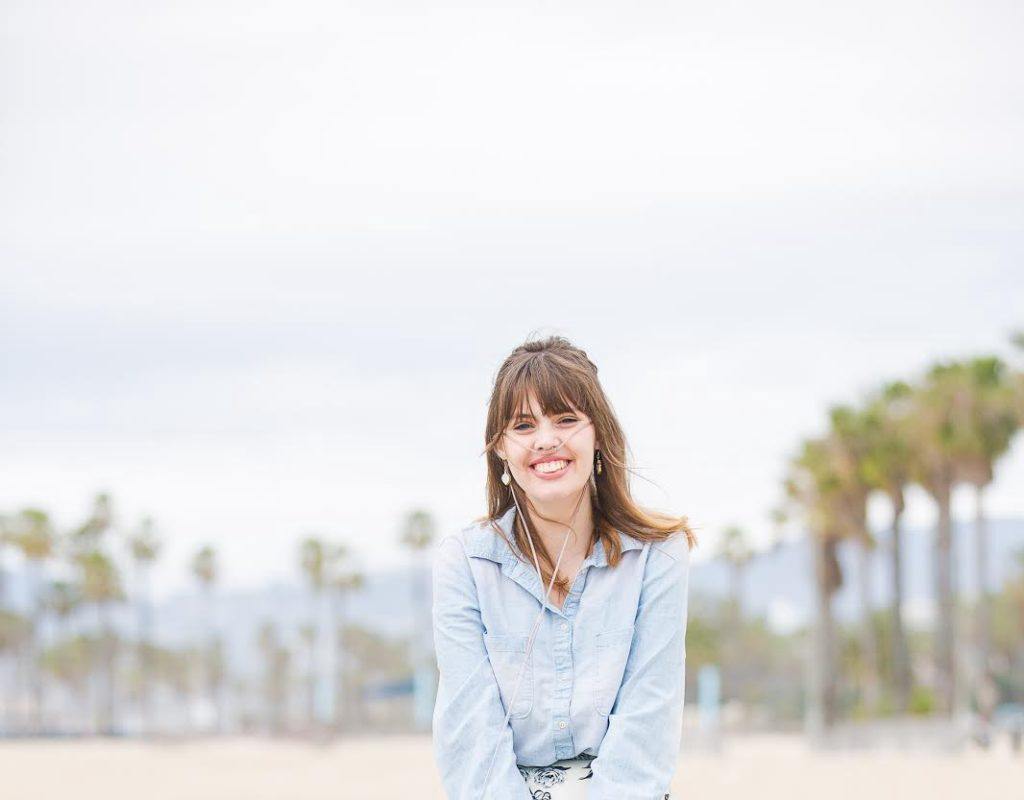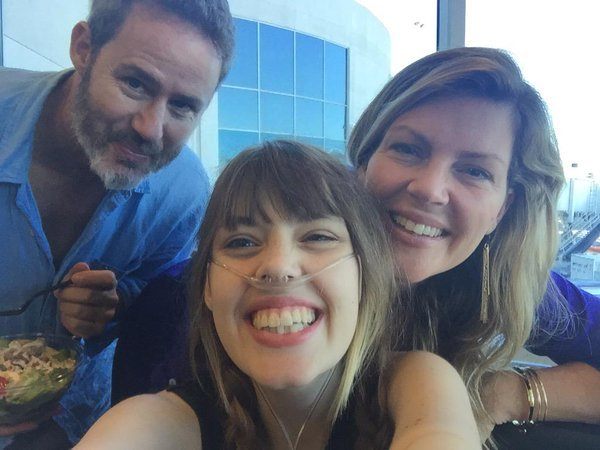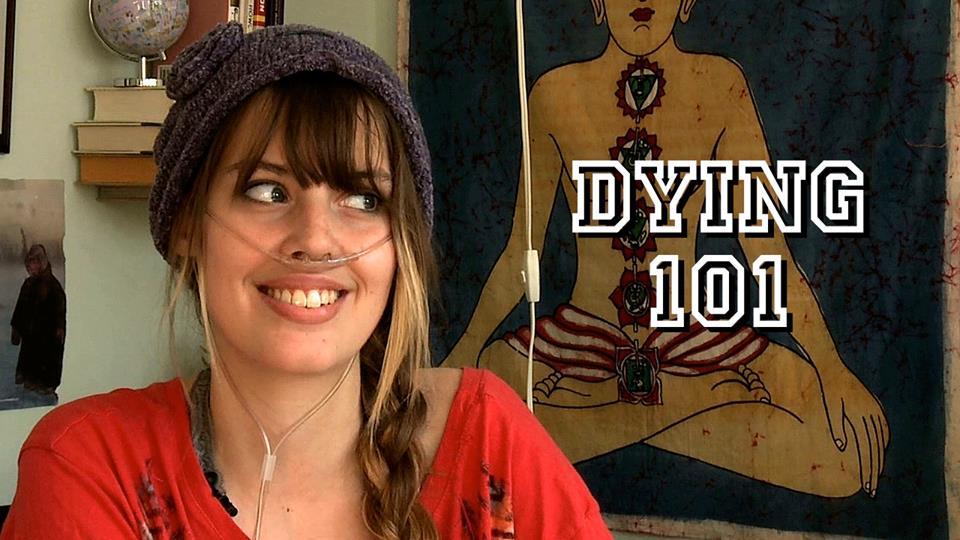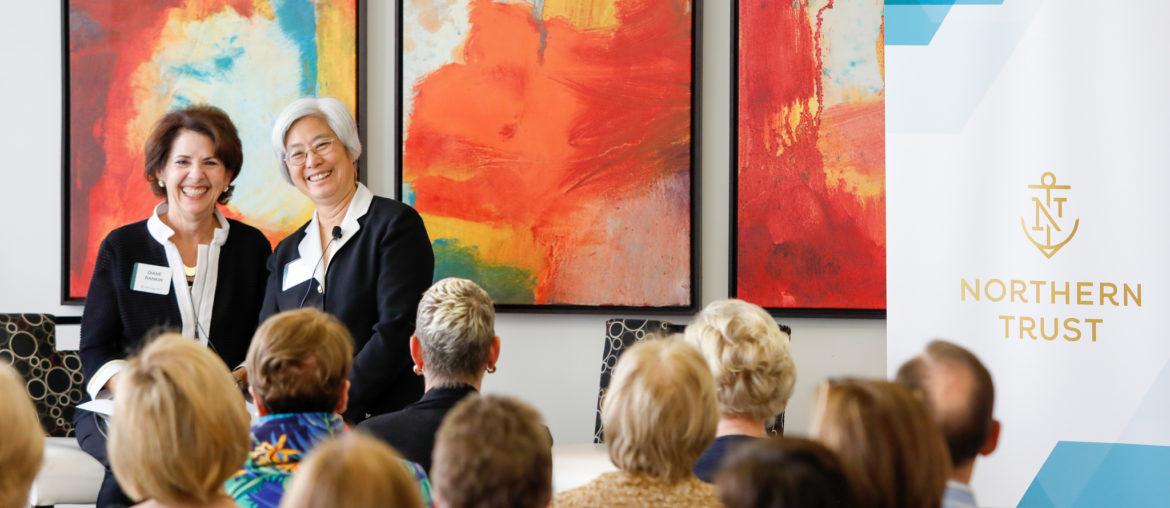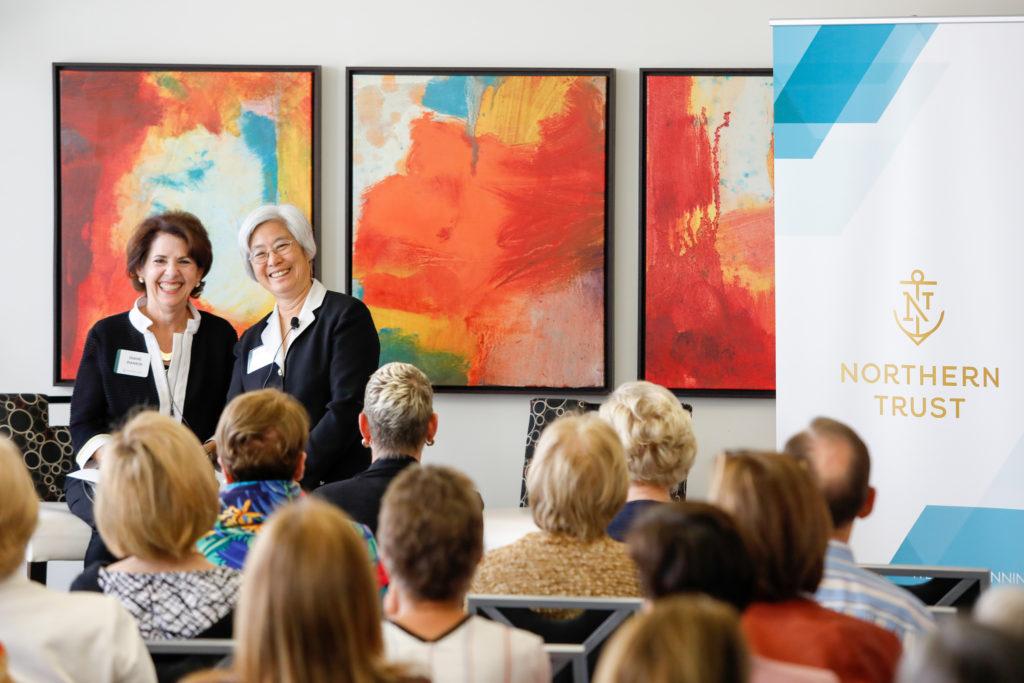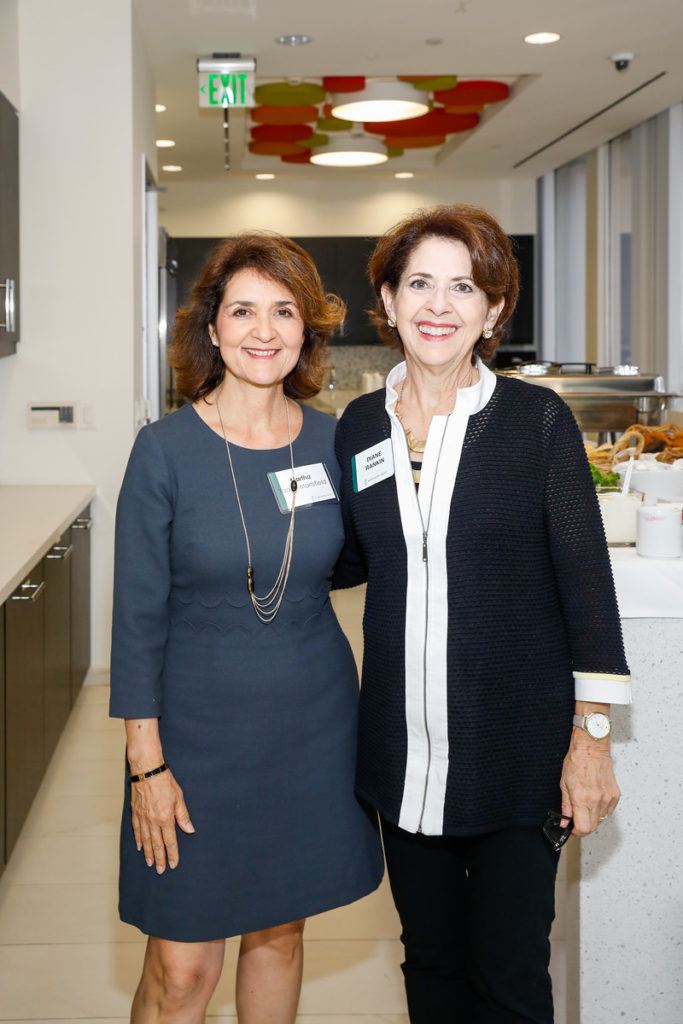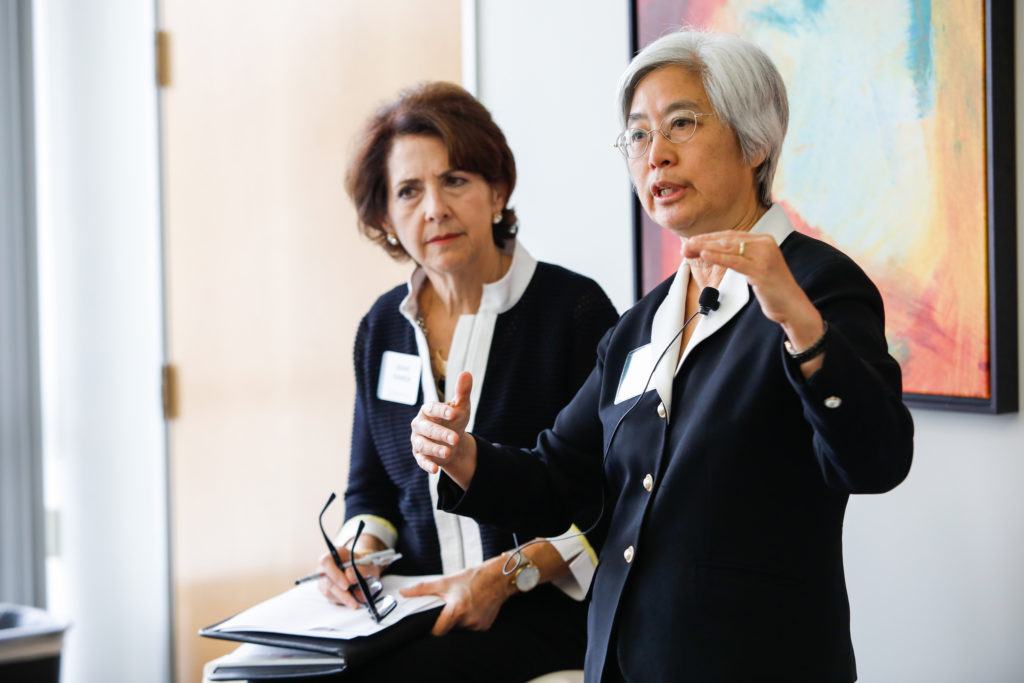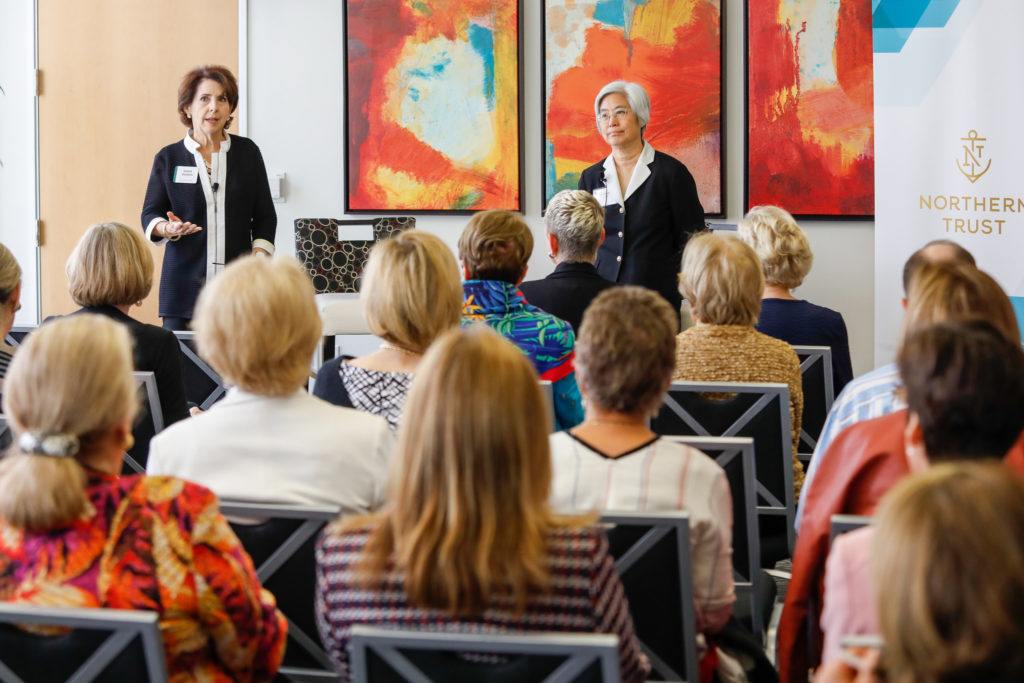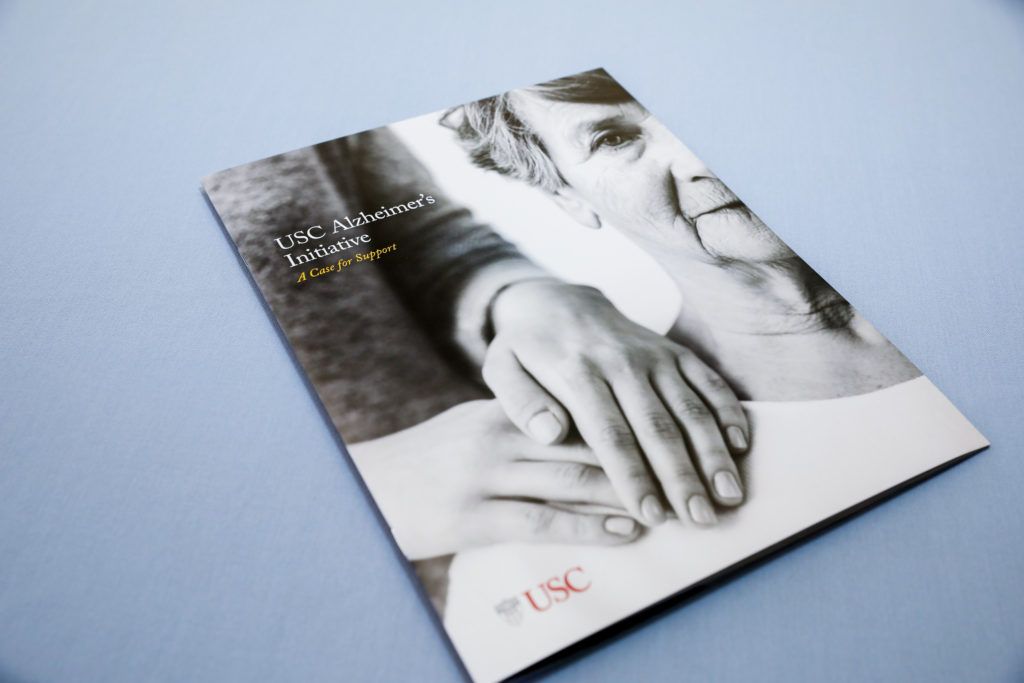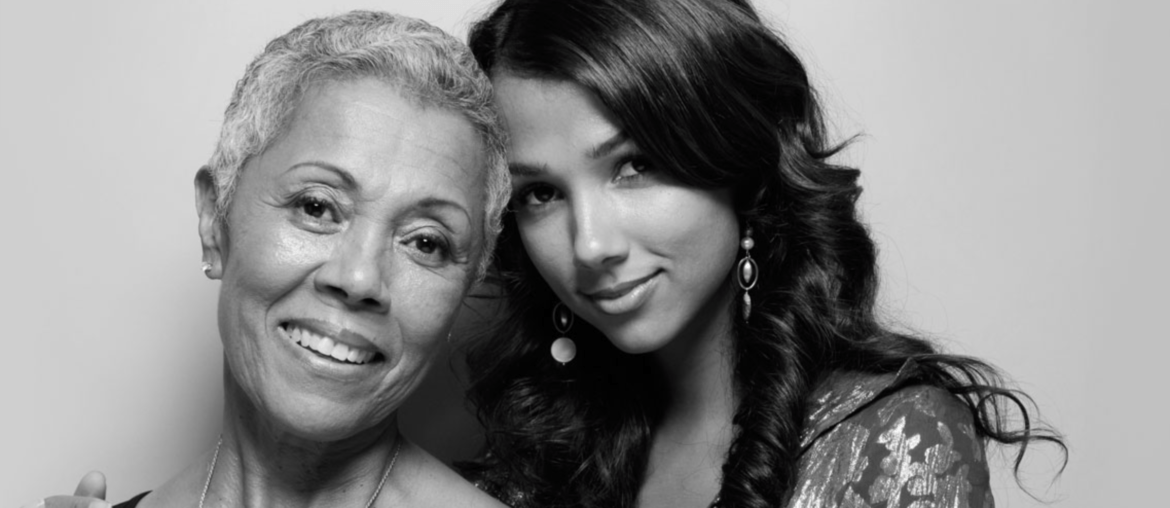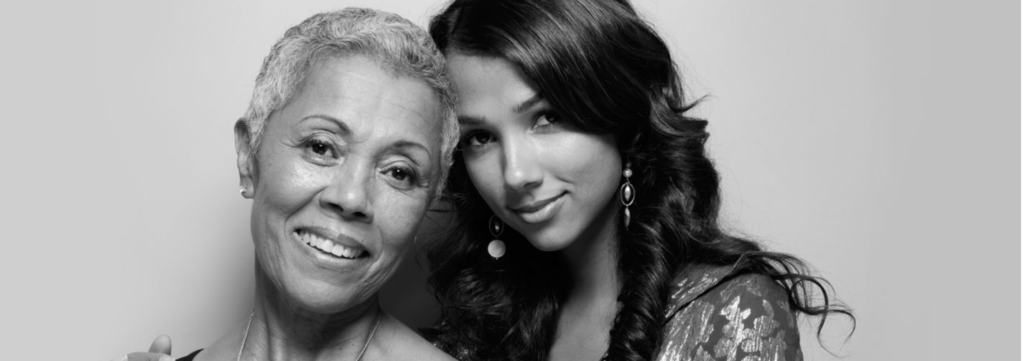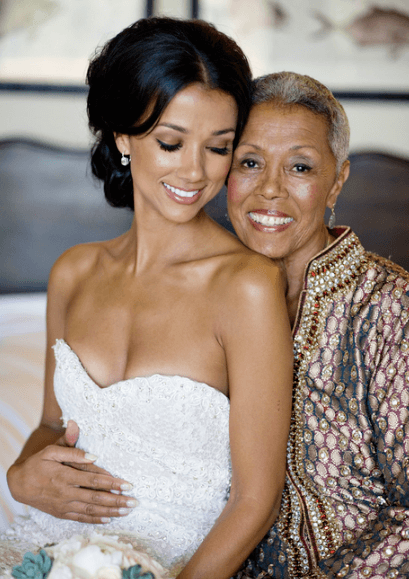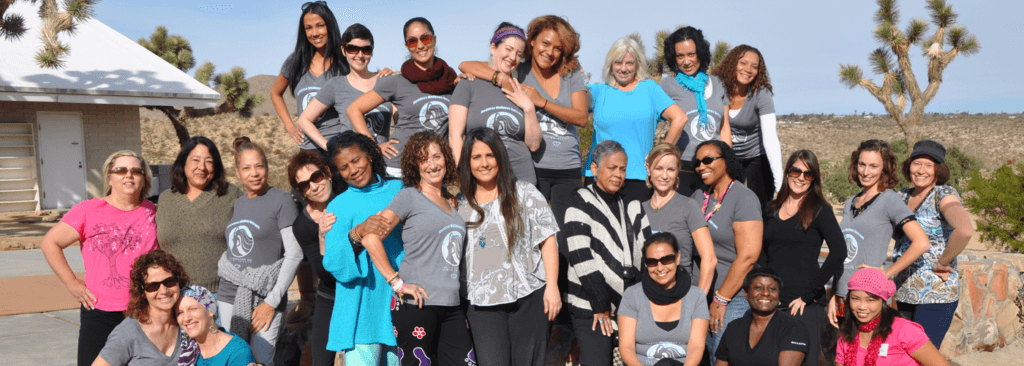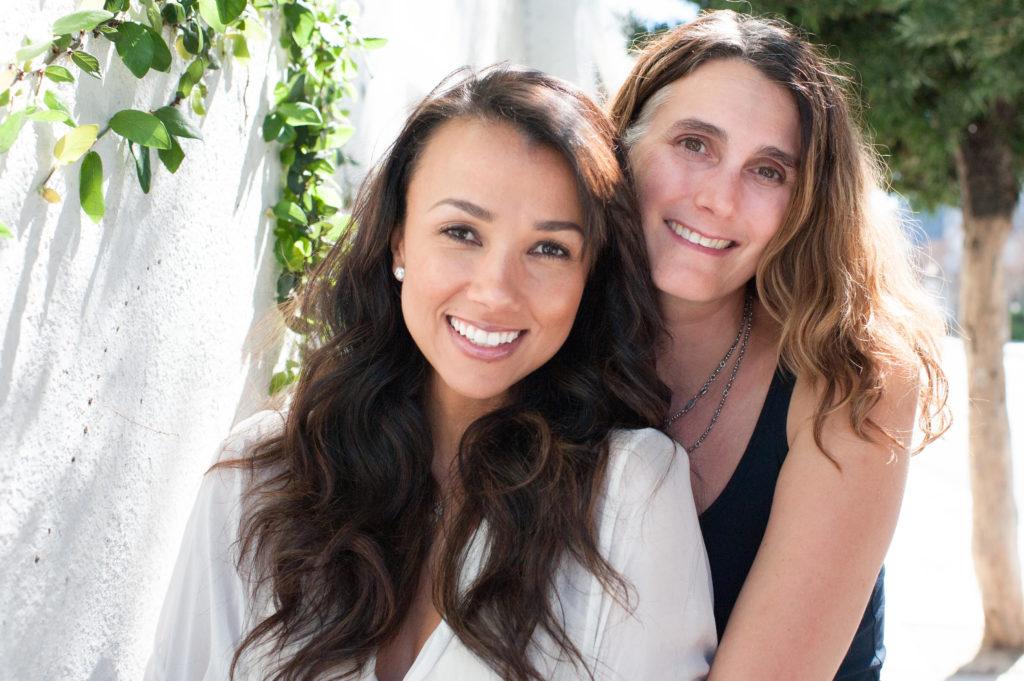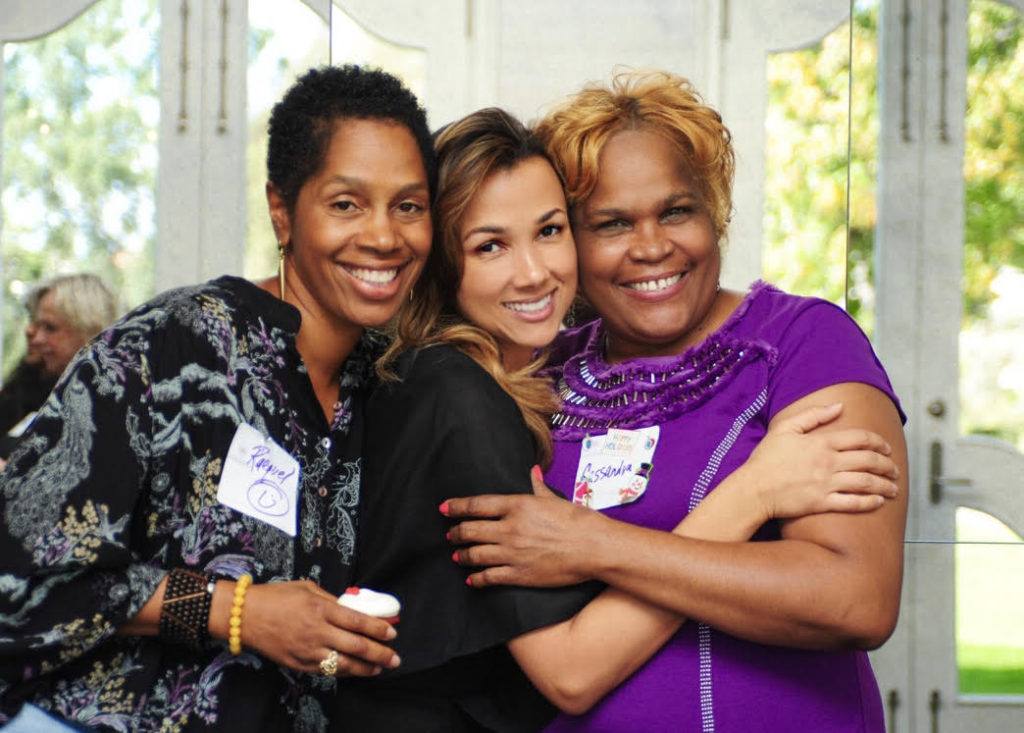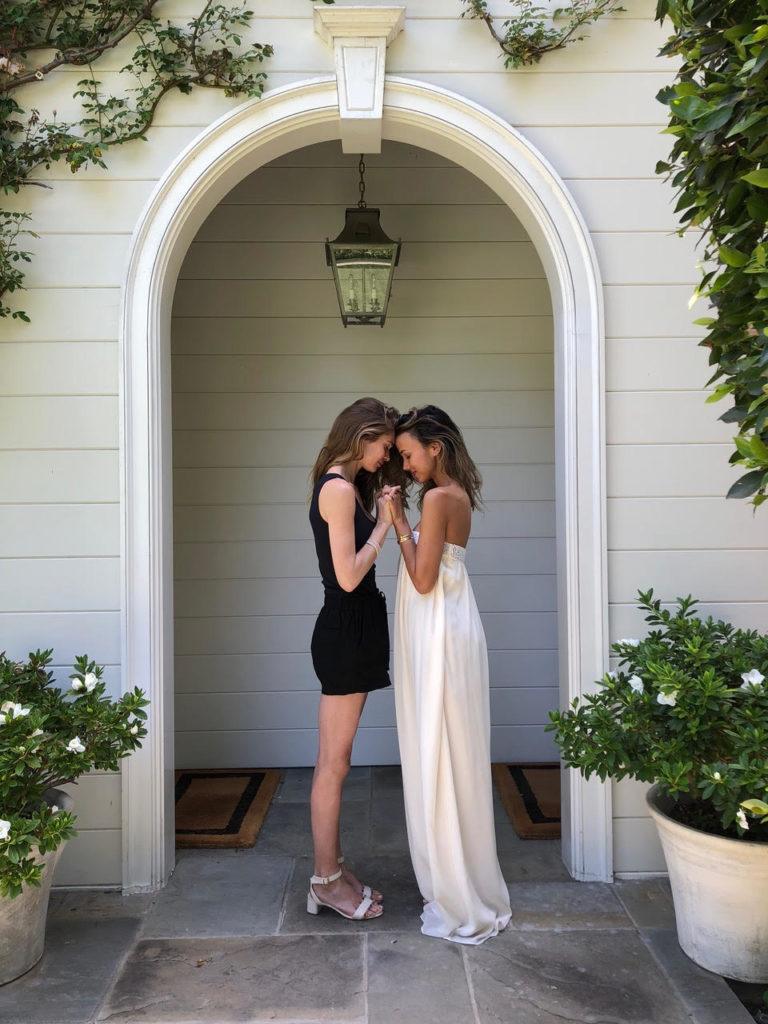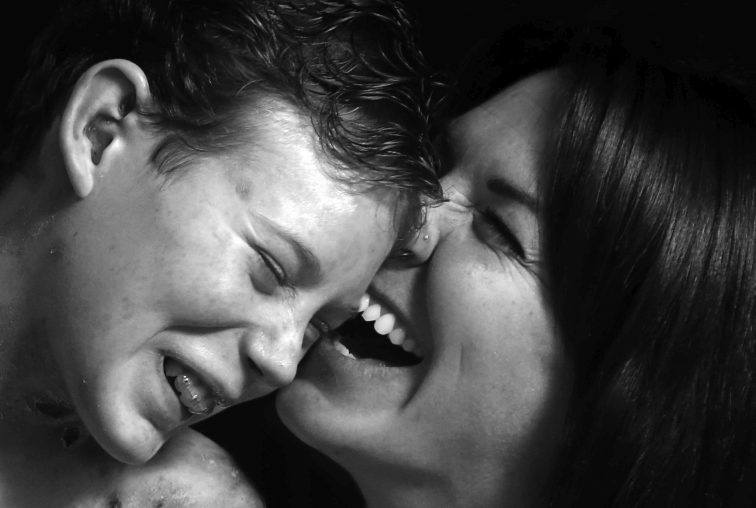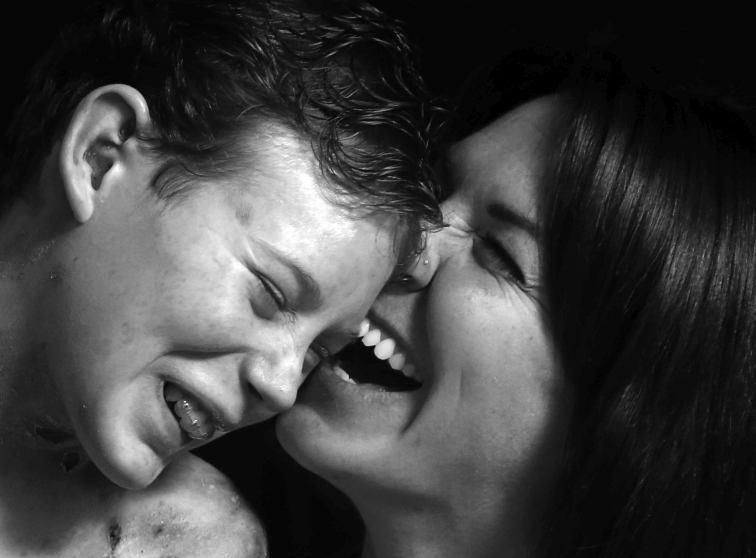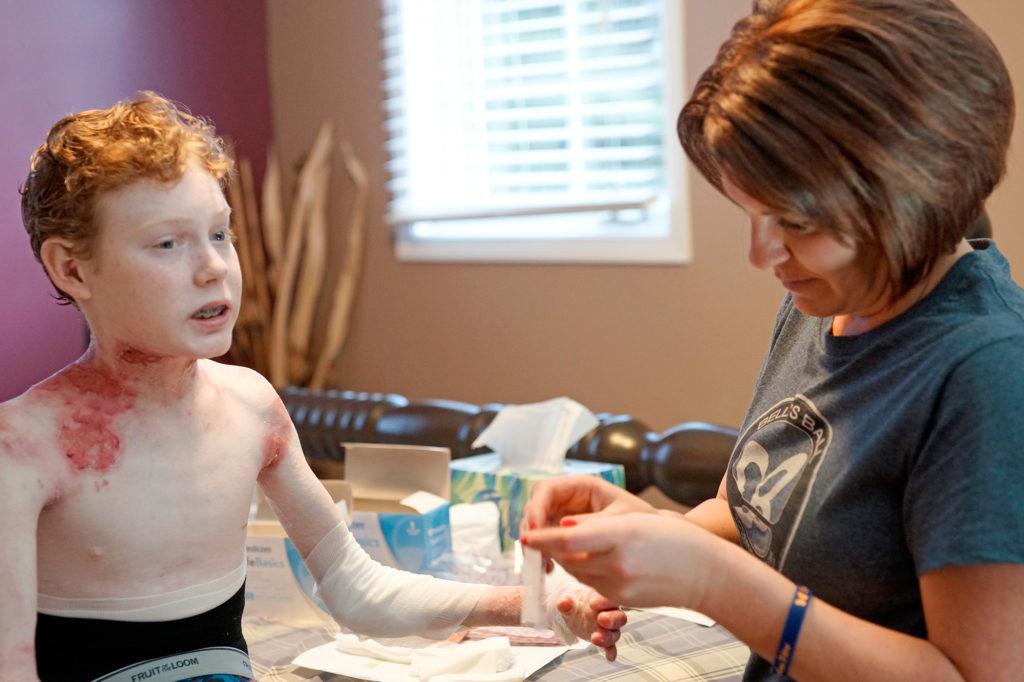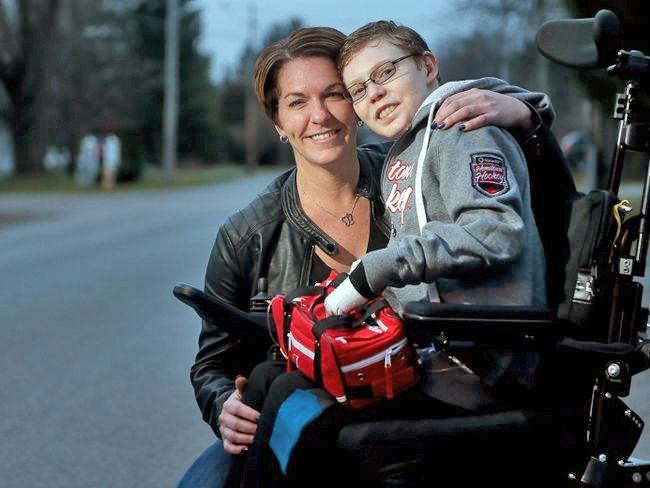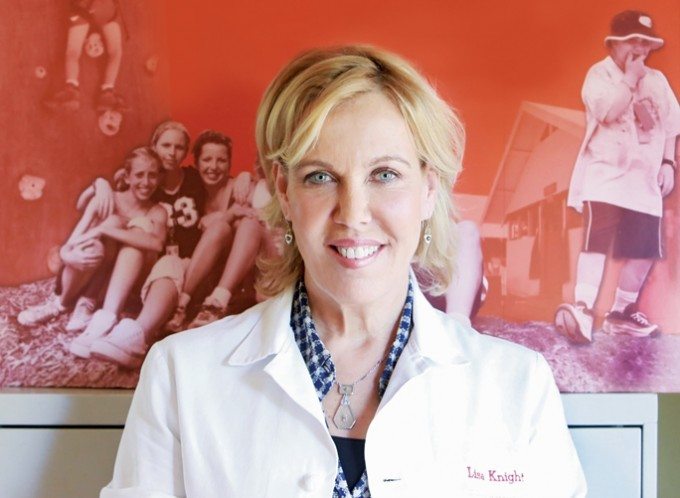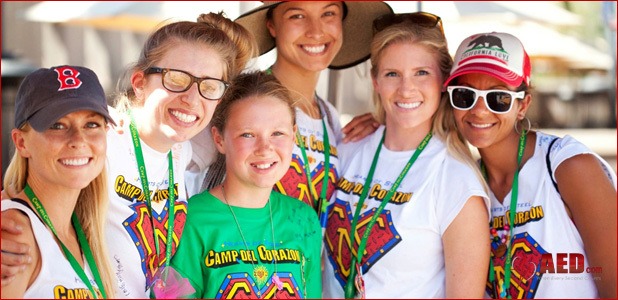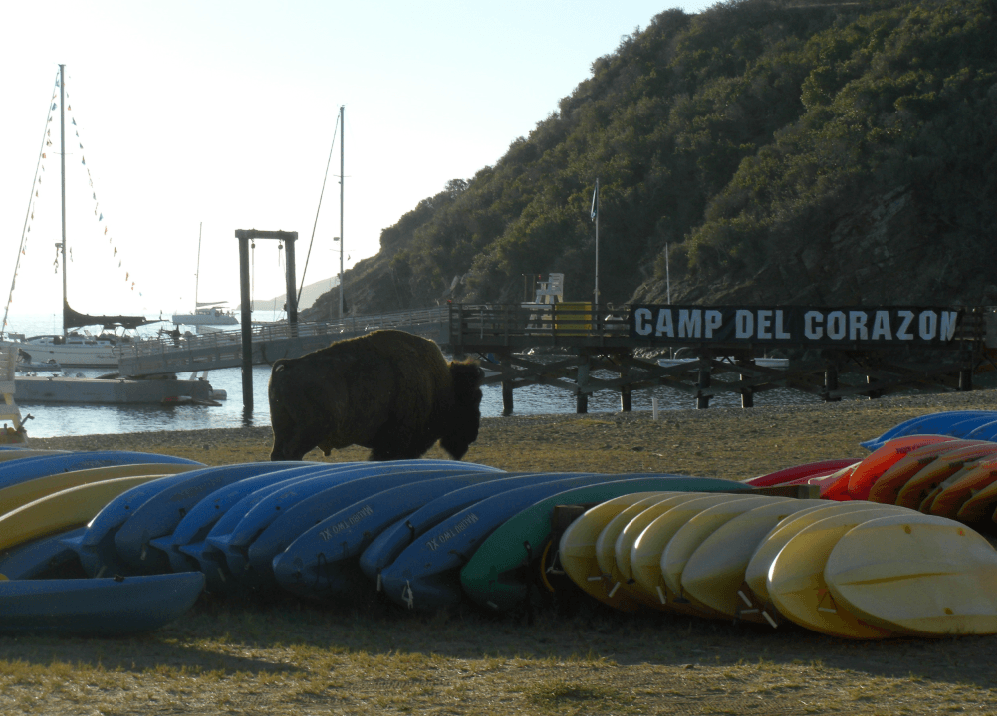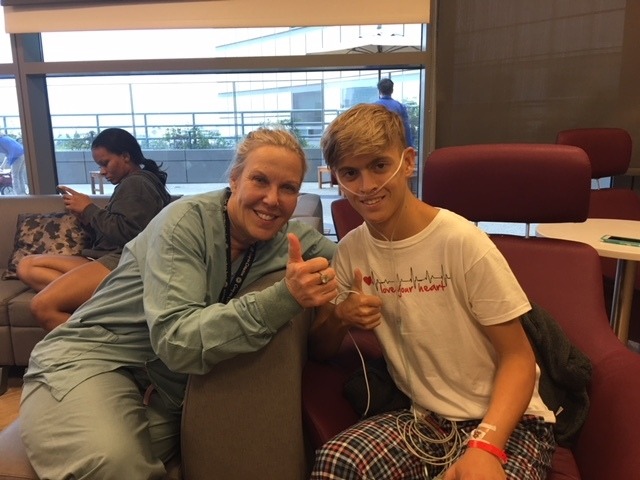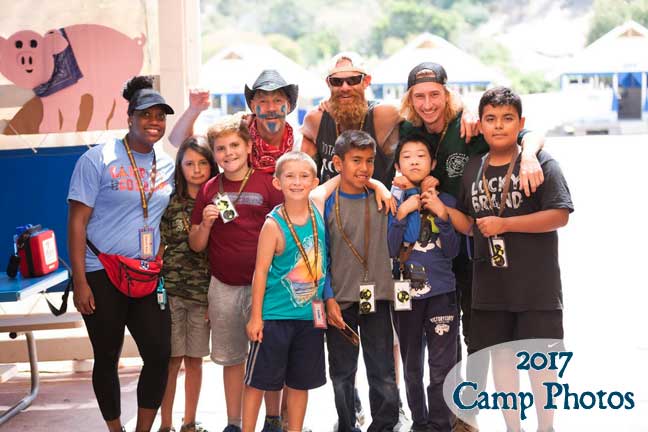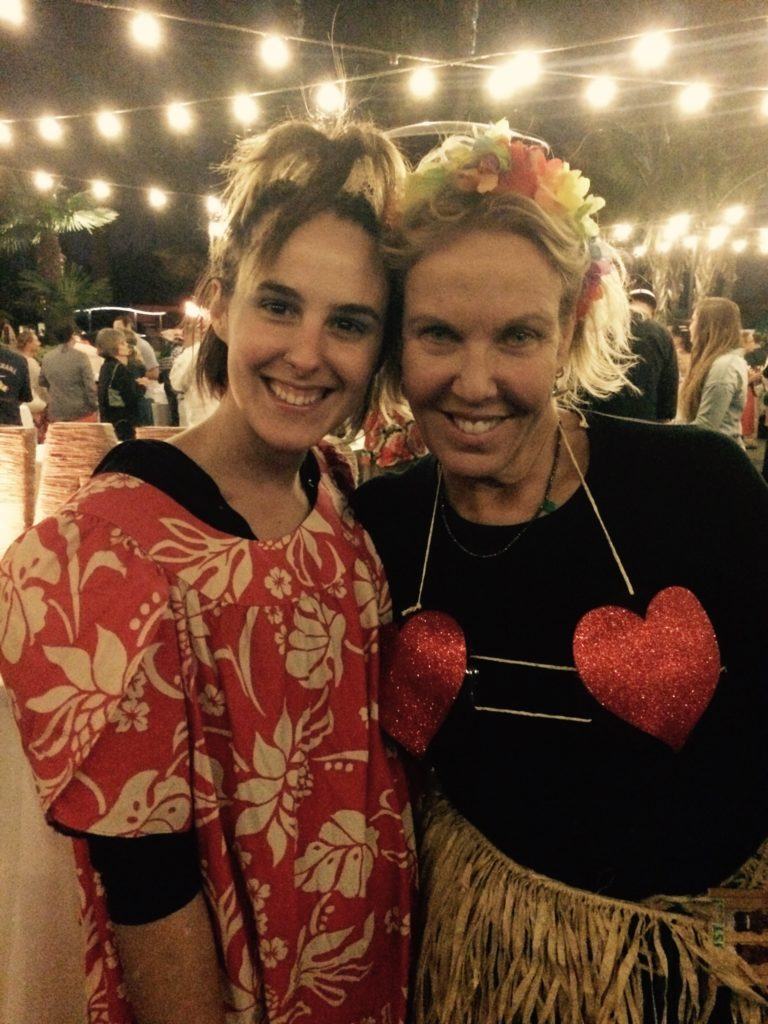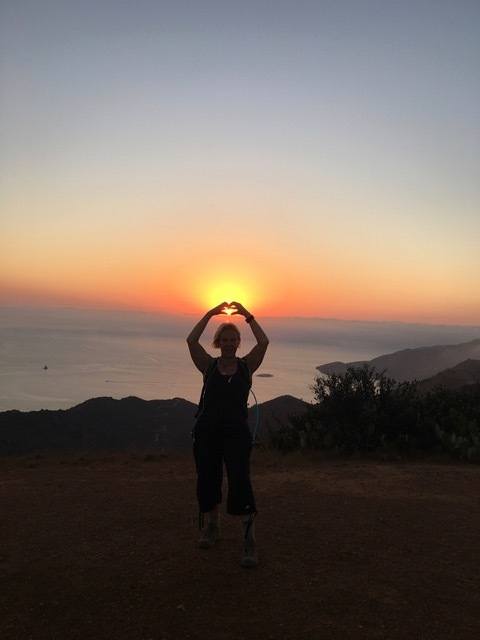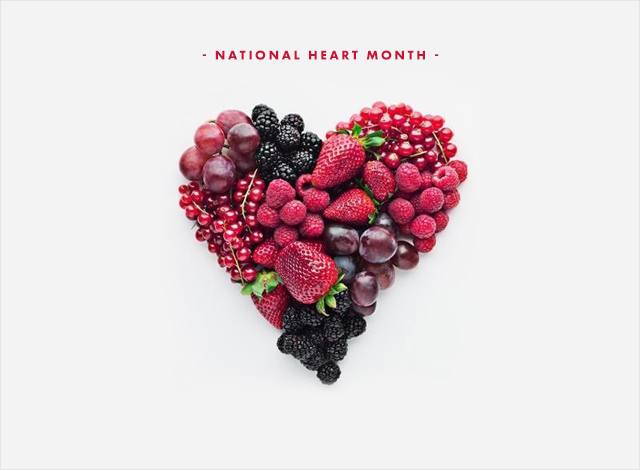“Being perfect is not about that scoreboard out there. It’s not about winning. It’s about you and your relationship with yourself, your family and your friends. Being perfect is about being able to look your friends in the eye and know that you didn’t let them down because you told them the truth. And that truth is you did everything you could. There wasn’t one more thing you could’ve done. Can you live in that moment as best you can, with clear eyes, and love in your heart, with joy in your heart? If you can do that gentleman – you’re perfect!”
Friday Night Lights
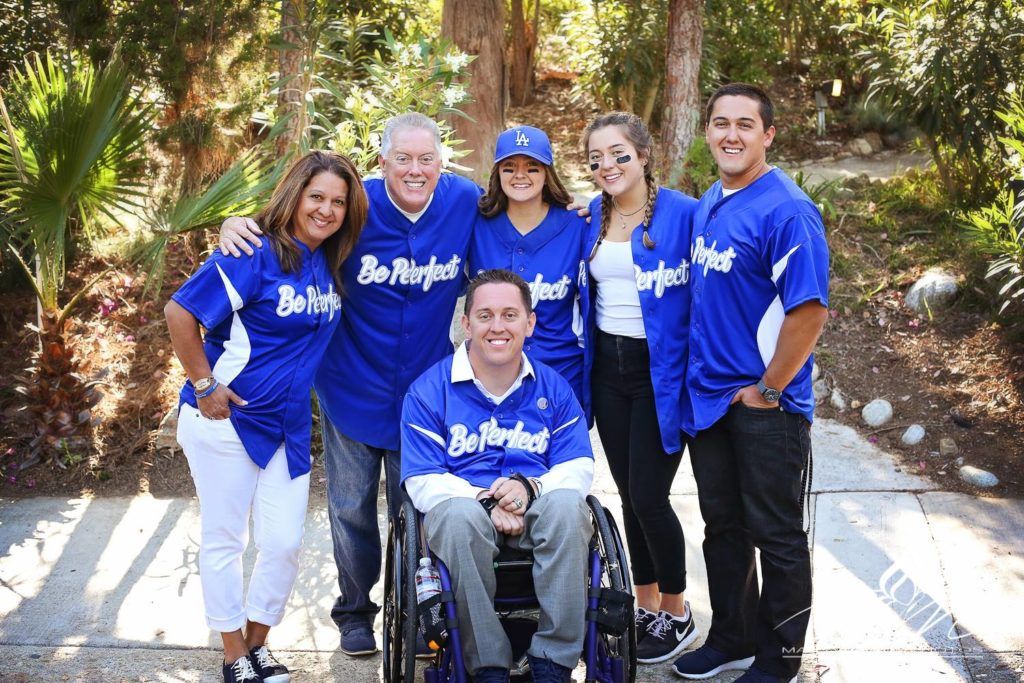
Two weeks ago I was in Canada with my husband on a business trip and we grabbed a cab with another couple we didn’t know attending this work event. We began to chat and this amazing couple told us that they had started a nonprofit with their son who is a quadroplegic to support other paraplegic patients with their organization the Be Perfect Foundation. As my husband said, “Heidi only you would share a cab with nonprofit founders.” We chatted with our new friends, the Hargraves, exchanged information and then we went on to take our youngest son off to college.
While we were getting our son settled I reached out to the Hargraves and was connected to their son Hal Hargrave Jr. via email. Hal Jr. and I set up a time to talk the morning I returned home from dropping our son. I was devastated and a mess and wondered why I had agreed to the conversation at that time. I will tell you that God sent this remarkable man into the world to lift us all up and I have thought about Hal Jr. a million times since we spoke. He had a profound impact on me with his incredible unflinching optimism and grace. He reminded me that we each choose our attitude everyday and we all have the power to lift others by choosing to be joyful. I hope our conversation is as impactful for you.

Charity Matters: Tell us a little about what The Be Perfect Foundation does?
Hal Hargrave Jr.: The Be Perfect Foundation is a nonprofit that’s mission is to provide direct financial and emotional aid to individuals living with paralysis.
Twelve years ago I was just graduating from high school and had aspirations of taking over my dad’s business. I was set to go play college baseball at Cal State Long Beach and pursue a business degree and in a wild twist of fate, God had bigger plans for me and put me exactly where I was supposed to be. Some might say that I was physically weak but I was more spiritually and emotionally strong and capable to go out and serve others. I had a huge change of perception of what is important in life and that is serving others.
After a roll-over car accident took my arms and my legs I recaptured my heart and my mind where it was time to go serve. Although I was deemed a quadriplegic, I had never been so capable and able to light the world on fire. Like everybody in this world you have that AH-Ha moment when you identify with things around you and mine was the realization of the lack of support from insurance companies and the inability that many had to fundraise for themselves because of paralysis. That was the need I had identified and I went to my parents and said I think this is what I have been called to do.
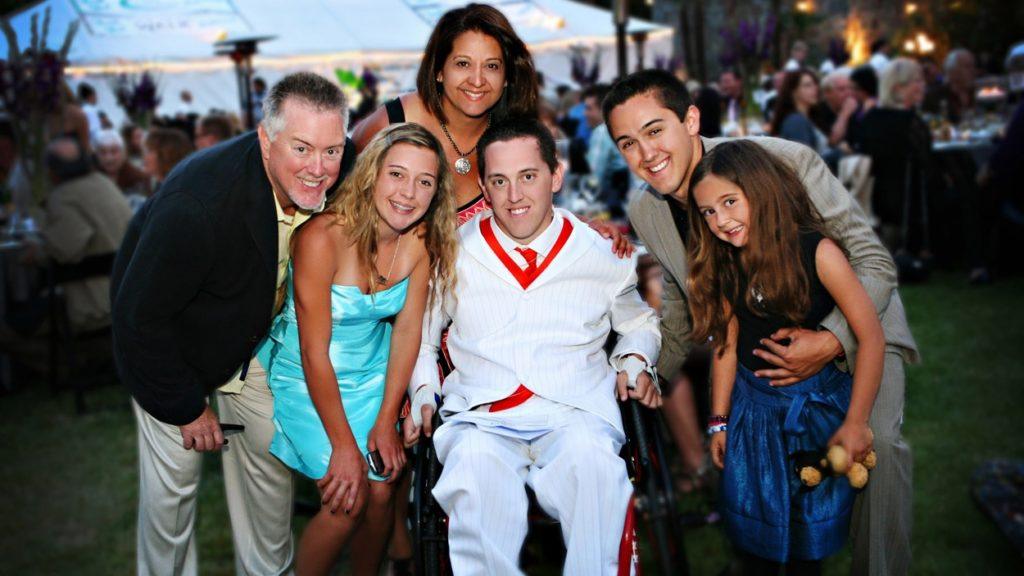
My parents said, if you are going to do this you will not expect a dime from this, you will give out of grace and expect nothing in return and as a family, we will support you through this endeavor. The Be Perfect Foundation was kind of born overnight, nine months after my injury in 2007. The mission is to provide direct financial and emotional aid for individuals living with paralysis by providing resources for paying medical expenses, restoring hope, and encouraging personal independence through a non-traditional method of exercise-based therapy.
The mantra of Be Perfect to me means being the best version of yourself that you can be every single day and that starts with your philanthropic heart. Twelve years later we have raised over seven million dollars for those living with paralysis for things like medical supplies, wheelchairs, vehicles, handicap accessible homes, and keeping people in exercise-based therapy programs.
Charity Matters: What was the moment you knew you needed to act and start The Be Perfect Foundation?
Hal Hargrave Jr.: Post-injury in ICU Care there are over 200 people holding a vigil outside of the hospital room and all I can think is what can I possibly do to repay these people? That answer came about on day five in ICU. A friend of mine named Katie came into my hospital room and she breaks down sobbing. At that moment I realized that every action I take and every decision I make affects somebody around me. I realized at that moment that I could play the whoa is me a card or change my attitude.
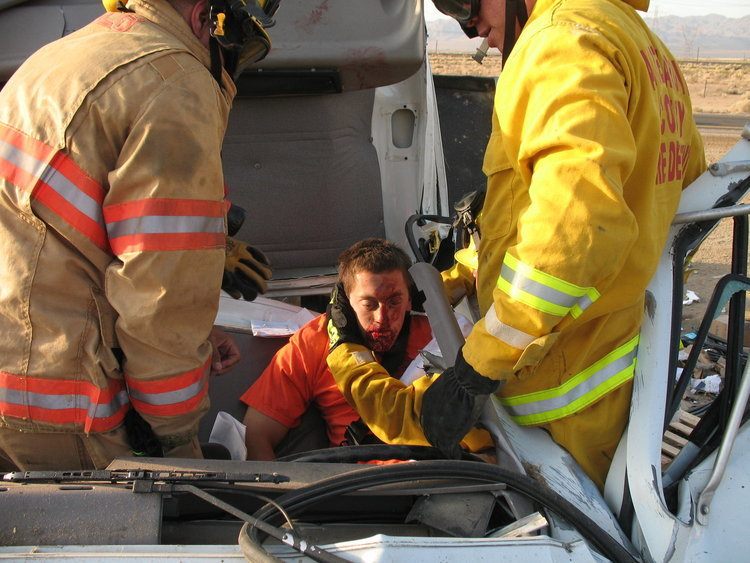
I said, Katie what are you crying about? She said, “But your not the same.” I said, But I am the same, Hal. I have a heartbeat, I’m here, I can smile, I can laugh, I can communicate with you. Everything is going to be ok. And in that minute she smiled and hugged me and that was the beginning of me realizing that I and all of us have the ability to have a positive effect on people. My approach to emotional intelligence transcended at that point. I believe we can control two things in life. One is how we feel about ourselves and the other is how we behave.
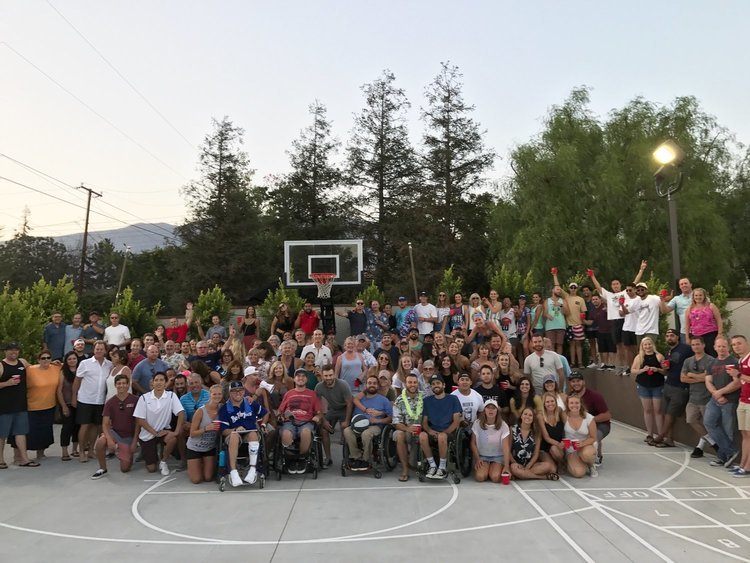
Charity Matters: Tell us what success you have had? What has your impact been?
Hal Hargrave Jr.:Let me just start with the most important number which is zero. I think our biggest impact has been that we are a one hundred percent volunteer endeavor and that zero dollars go to administrative costs. You will do this to serve others for the rest of your life because this is about other people and it is not about you. I want people to know that this mom-and-pop organization gives 100 percent of funds to those we serve through program services. We have raised over seven million dollars providing over seventy-five wheelchairs for people in need, we have helped over 400 people stay in our exercise-based therapy programs. We meet people in the acute care setting typically within 72 hours of their accident to talk to remind them of the great possibilities that are out there. We also treat people with all types of neurological disorders now outside of spinal cord injuries. Be Perfect is a way of life and we want everyone to try to be a better version of themselves.
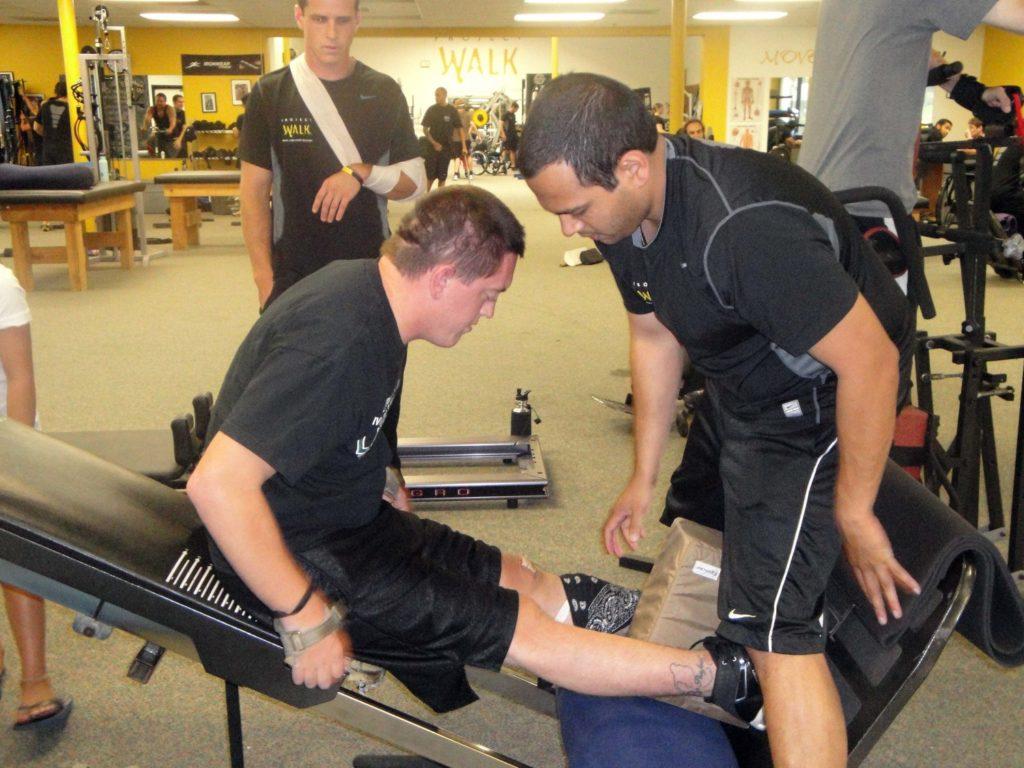
In addition, my family owns an outpatient recovery center called the Perfect Step. We went into business twelve years ago with a local gym called the Claremont Club. The gym wanted to know how they could be a part of my recovery. The gym built out the racquetball court and I was the sole client. Now the facility is 7,000 square feet with 100 clients. While my family owns this business 100% of the proceeds go to the Claremont Club. We see 100 clients a week and many of our fundraised dollars go into making it possible for these patients to receive the exercise program. I am the facility director at The Perfect Step and Executive Director of The Be Perfect Foundation.
Charity Matters: What are your biggest challenges?
Hal Hargrave Jr.: I went to the University of LaVerne for my undergraduate degree and then I got my Masters in Leadership. I also met my beautiful wife there as well. We were married last September. The University President asked me to stay and help them fundraise for their annual giving. Through that experience, I realized that our biggest hurdle is from an annual giving perspective of getting those repeat donors. Seeing those dollars and cents in that continuous repetitive transaction create value in people’s hearts. We are also trying to empower others and give them the platform and the voice in the community to raise funds for us.
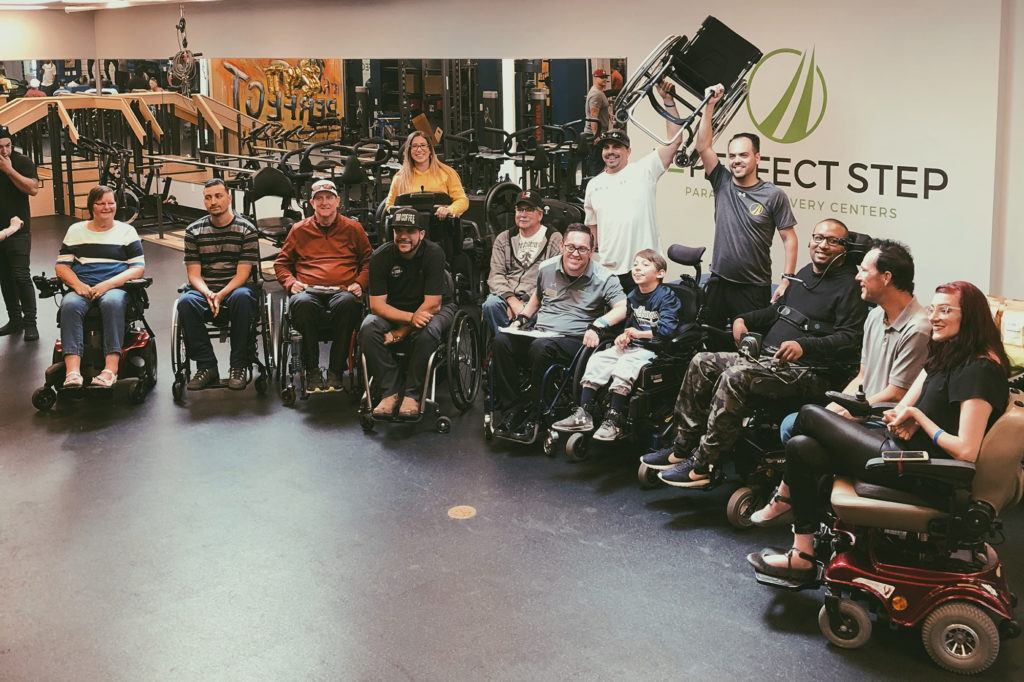
Charity Matters: If you could dream any dream for The Be Perfect Foundation, what would that be?
Hal Hargrave Jr.: Our intent is to take the Perfect Step national. We want to provide Perfect Steps in every major region across the country so these patients have access to a low-cost recovery model. They are similar to fitness clubs which help our patients with long-term sustainability. We would like for The Be Perfect Foundation to grow in tandem with The Perfect Step. The dream would be to have the nonprofit be able to raise money for local chapters across the country to give patients access to this program. The dream for the Be Perfect Foundation for the next five years is to create an endowment that would sustain the organization for life. I want to have a broader vision to ensure that our work is carried on for years to come.
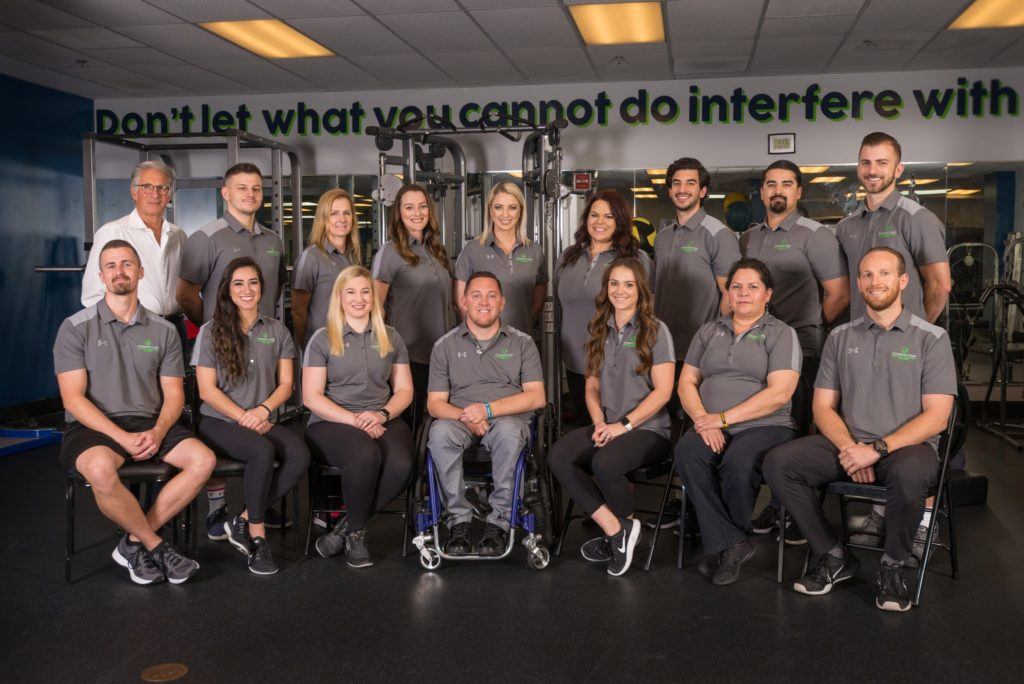
Charity Matters: What fuels you to keep doing this work?
Hal Hargrave Jr.:To be quite frank about it, I fear not being on this earth more than anything because I know there is more that I have to give to this world and that I have more in the tank. I have an opportunity to either live life for myself or for others. It is an easy decision every day to live my life for others. The most interesting thing about it is that I am always the benefactor, whether it is a smiling face or a new attitude. It makes me a better and more aware person each time this happens.
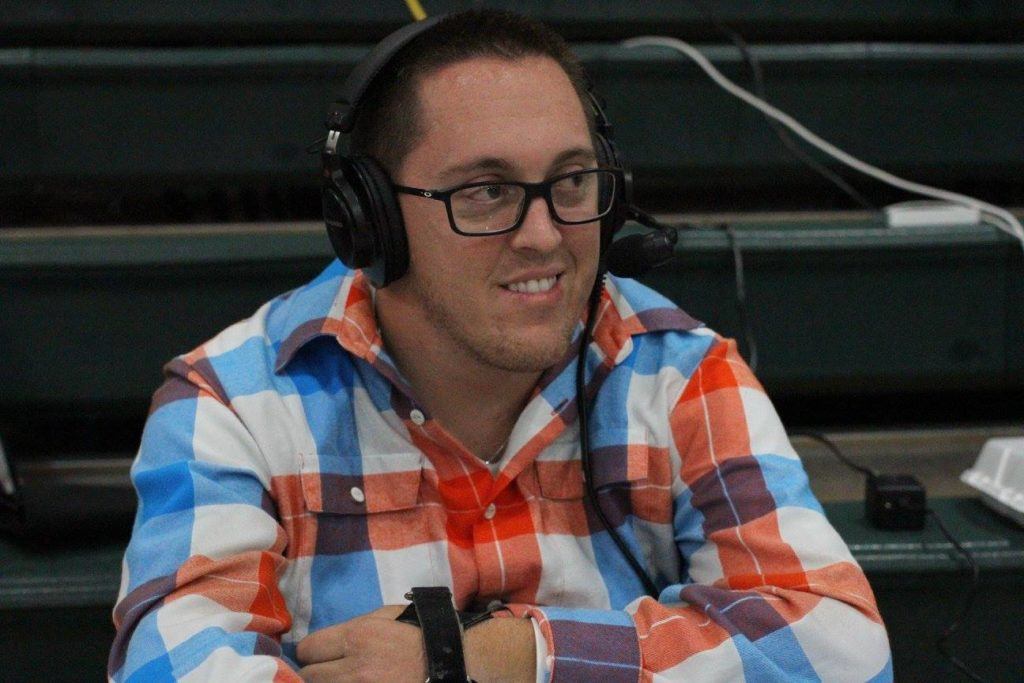
There is a level of excitement for me when I wake up every morning because I don’t always know what is going to be. Sometimes something seems negative because not everything in life is rainbows and unicorns in life. When we try to see the good in everything in life, we can always have a positive outcome with what surrounds us. There is a sense every day, philanthropically speaking, that if my face is attached to this foundation then it better be the best and be the most authentic and sincere way possible. At the end of the day, there is one thing that matters to me in life and that is my authenticity and sincerity is what matters. If you are going to be perfect you have to get up and be the best version of yourself every day. God has great plans for me, I need to listen to him and I need to stop talking about all the problems in the world and I need to be a part of the solution.
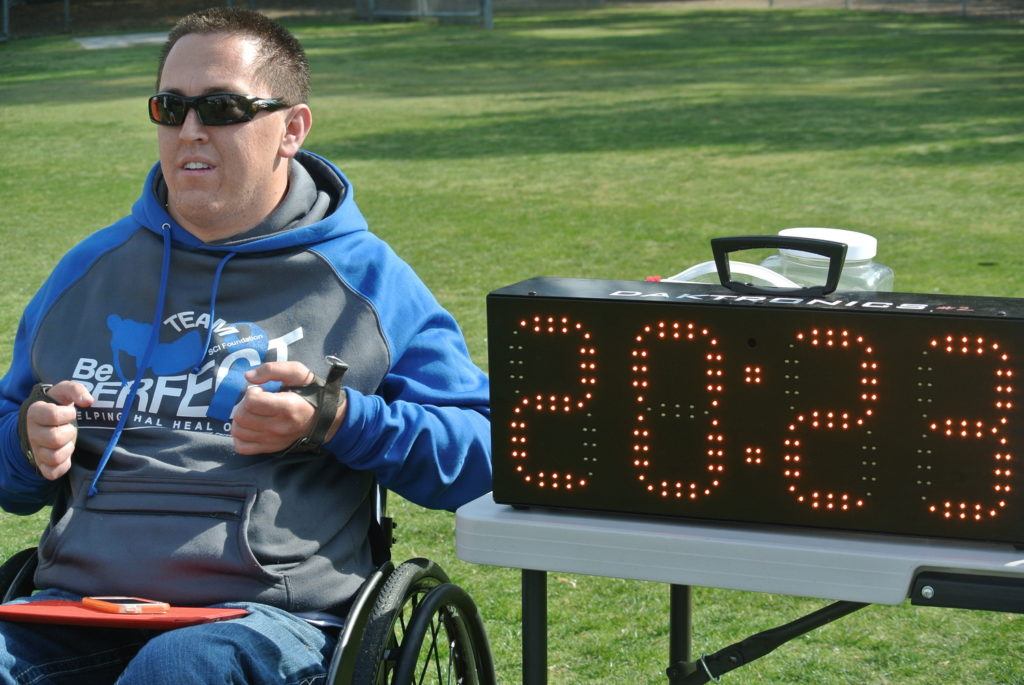
Charity Matters:When do you know you have made a difference?
Hal Hargrave Jr.: Sometimes as simple as it is, getting a thank you note from someone. Having humility is one of the toughest things to have in this world. There are a lot of takers in the world but when someone comes up to me and says, “How can go out, and can I pay it forward?” When someone wants to know how they can be there for others. When I can get someone to say how can I be involved, I know that is what the intent of this is for, to not only show people how we can be there for them but how they can get back up on the high horse and start being there for others. When we can create a world where everybody is a giver and not a receiver….can you imagine what this world would be like?
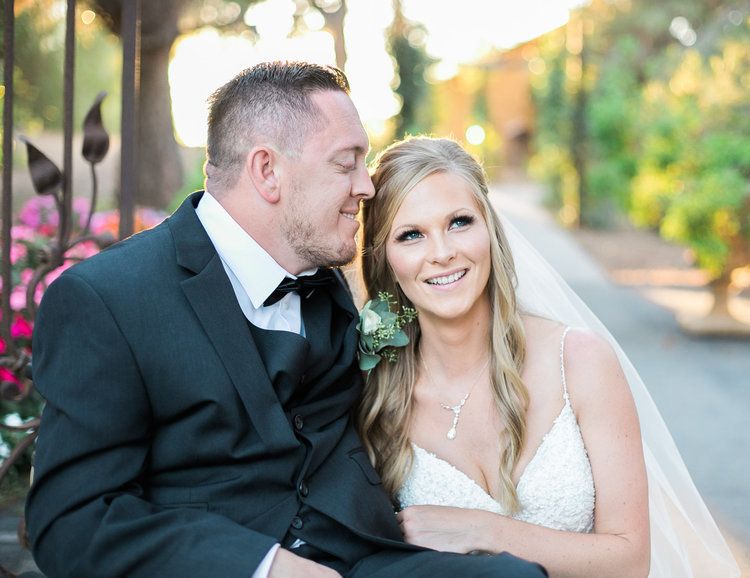
Charity Matters: What life lessons have you learned from this experience?
Hal Hargrave Jr.: We live a life with underlying intent. We all believe that we are at the center of our own universe and with everything that is going on around us rather than what is going on within us. We act to take of ourselves and not others. We are hard-wired to protect ourselves first. I have had to learn to get out of my own way and that it doesn’t start with me but with others. I have to remind myself when I’m stressed to remove myself by one degree and say to myself that A) I can handle anything. Nothing has ever taken me down. B) Find a way to put others before yourself. C. Always lead with empathy, go to the depth to find out what is below someone’s surface-level because sometimes we don’t someone’s whole story. Life is about others. D) Everyone can coexist if we always lead with respect. How you treat one person is how you treat every person.
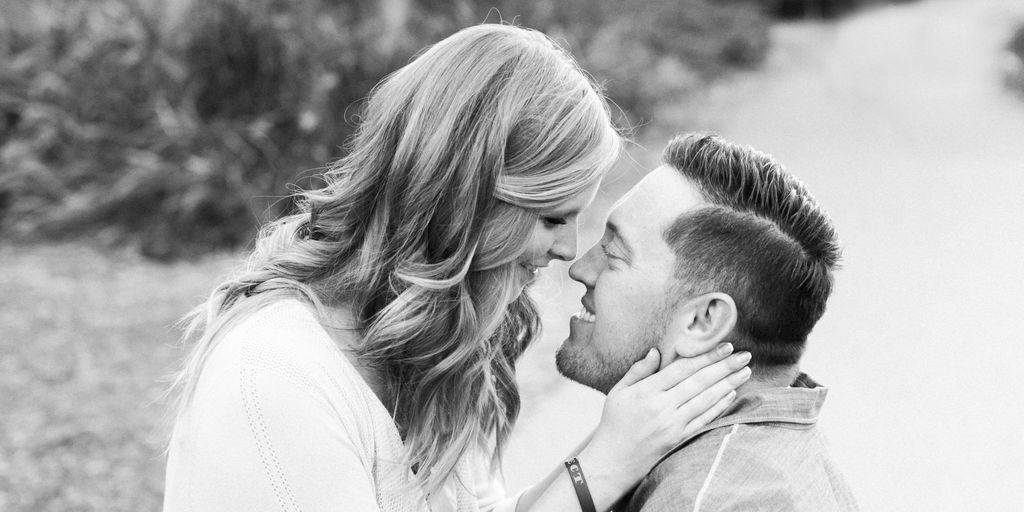
Charity Matters: How has this journey changed you?
Hal Hargrave Jr.: On July 26th, 2007 the morning of my accident the person that I was was driven by dollars and cents. It was all about how I was going to school for me, how I was going into the business school to make money for me, how I was going to make money for myself working for the family business, how I was on a baseball scholarship for me. Everything was me, me, me, me. Today that me word or I word is never used. Today I live for others before myself.
Charity Matters
Copyright © 2019 Charity Matters. This article may not be reproduced without explicit written permission; if you are not reading this in your newsreader, the site you are viewing is illegally infringing our copyright. We would be grateful if you contact us.

